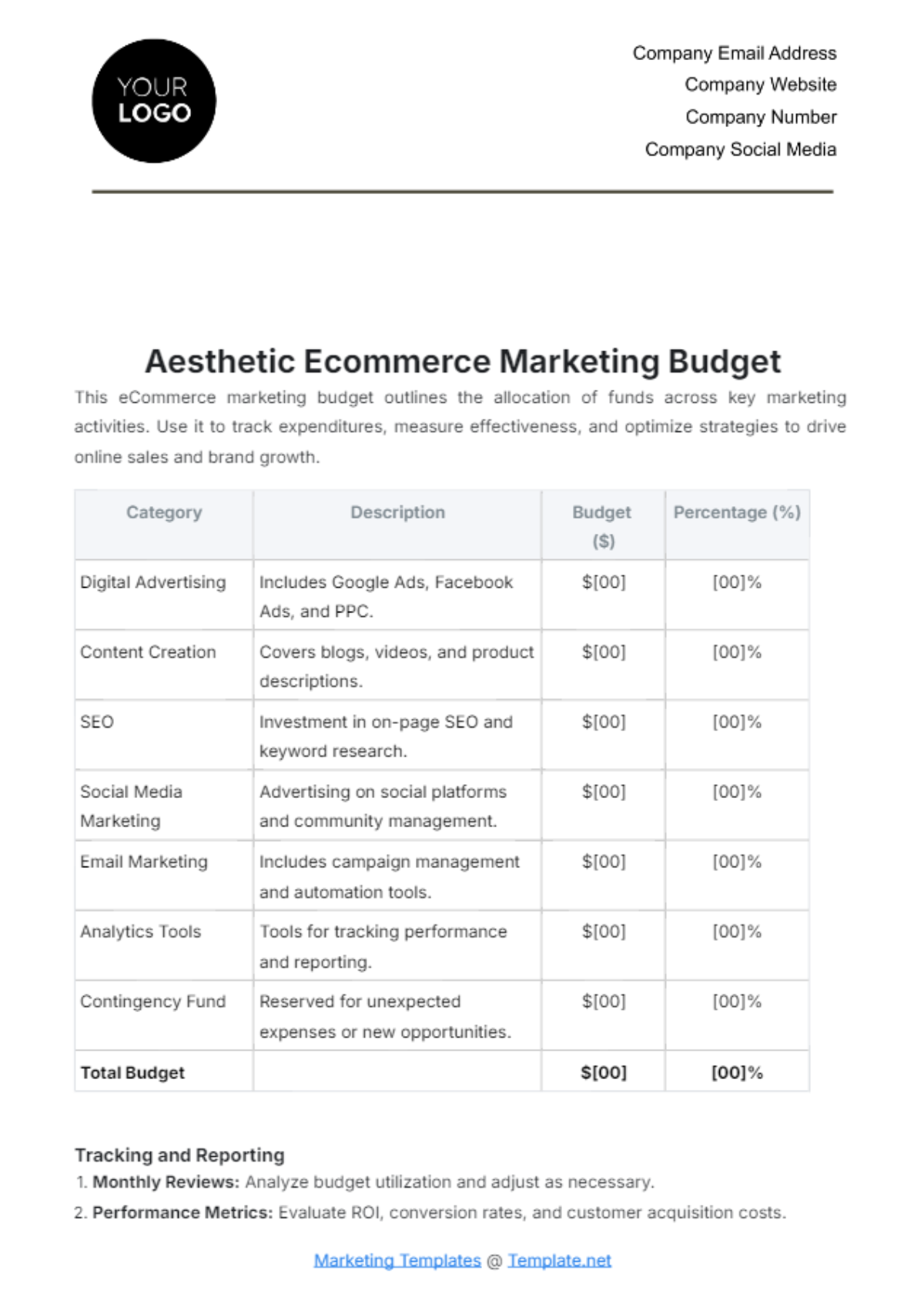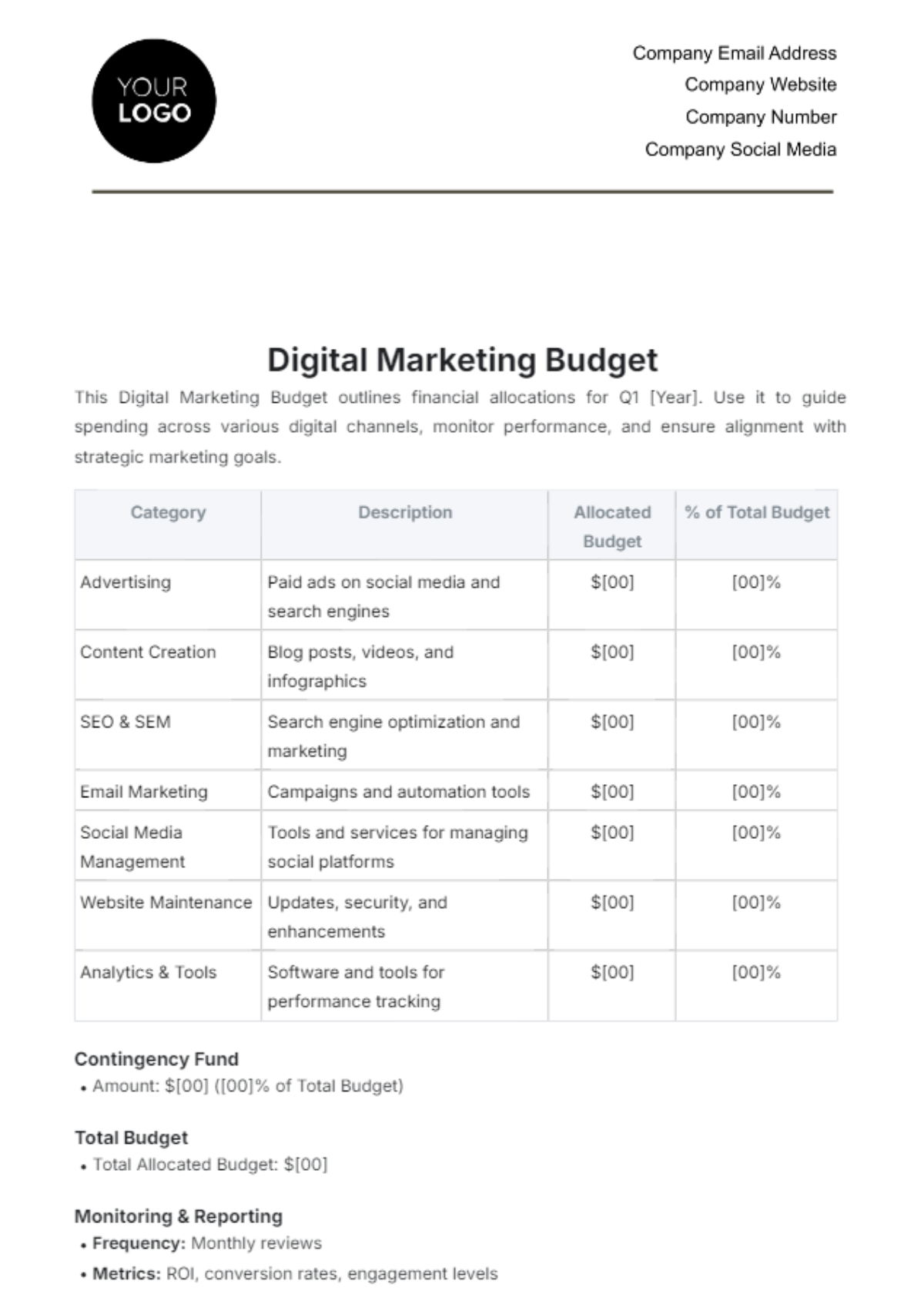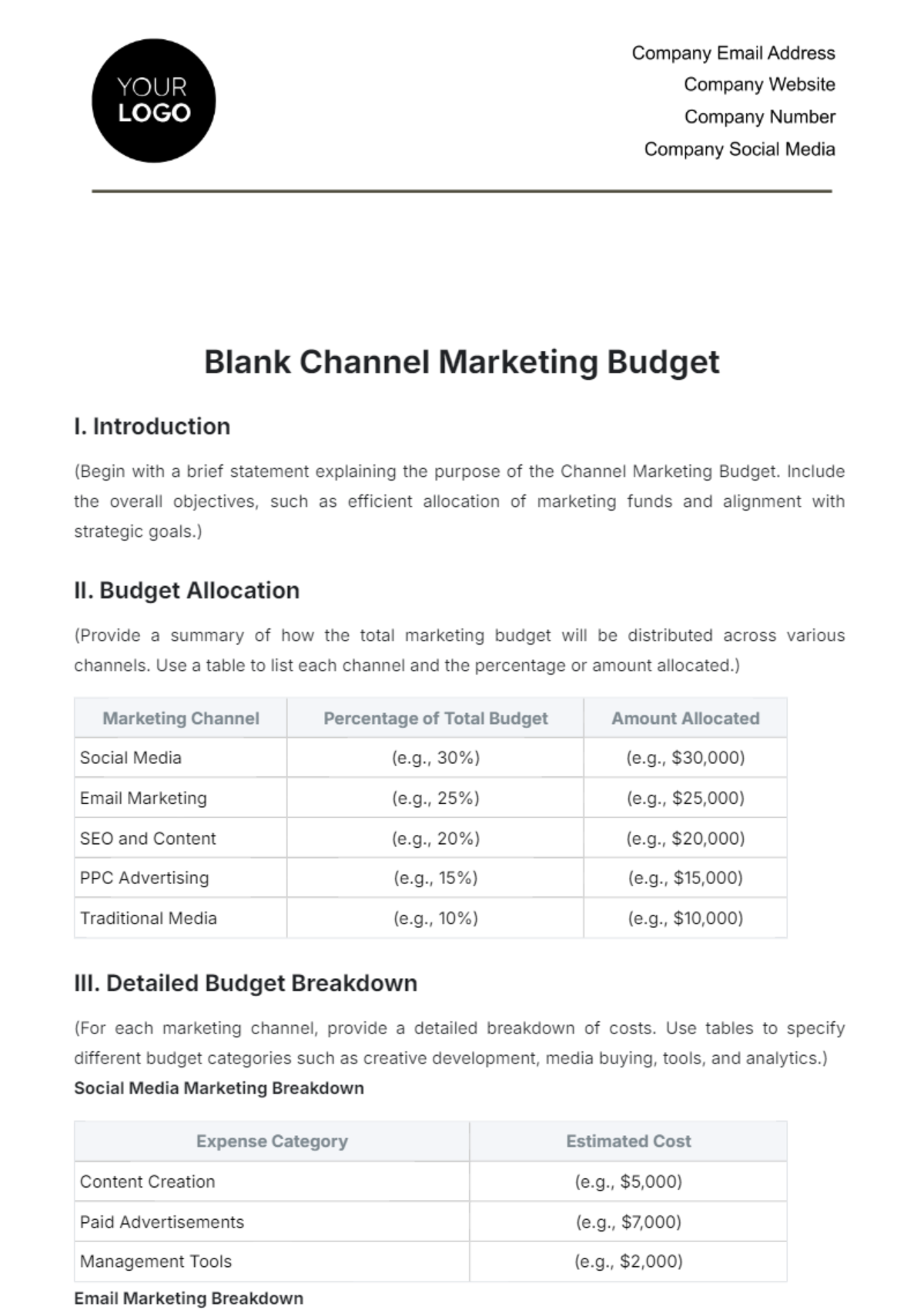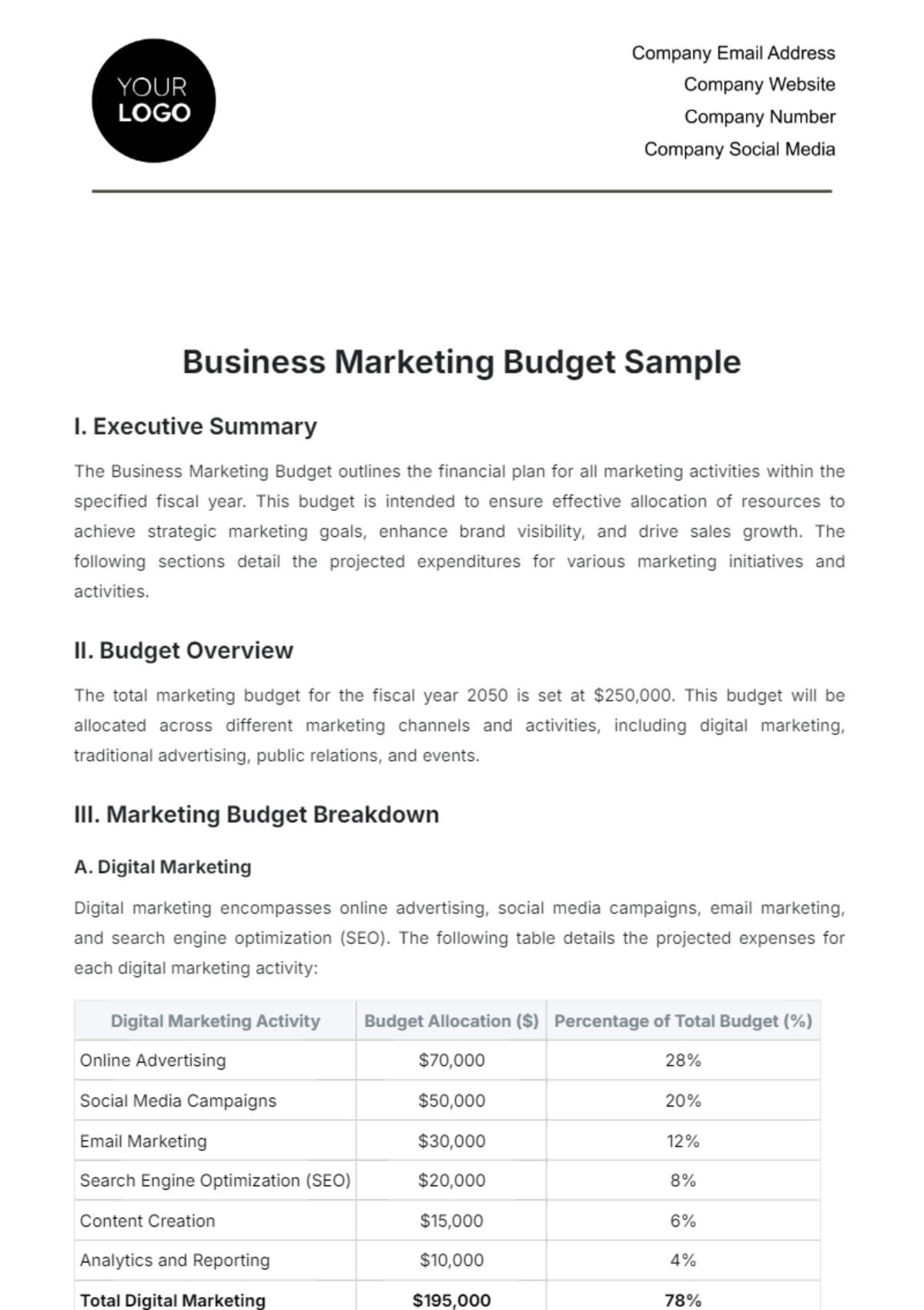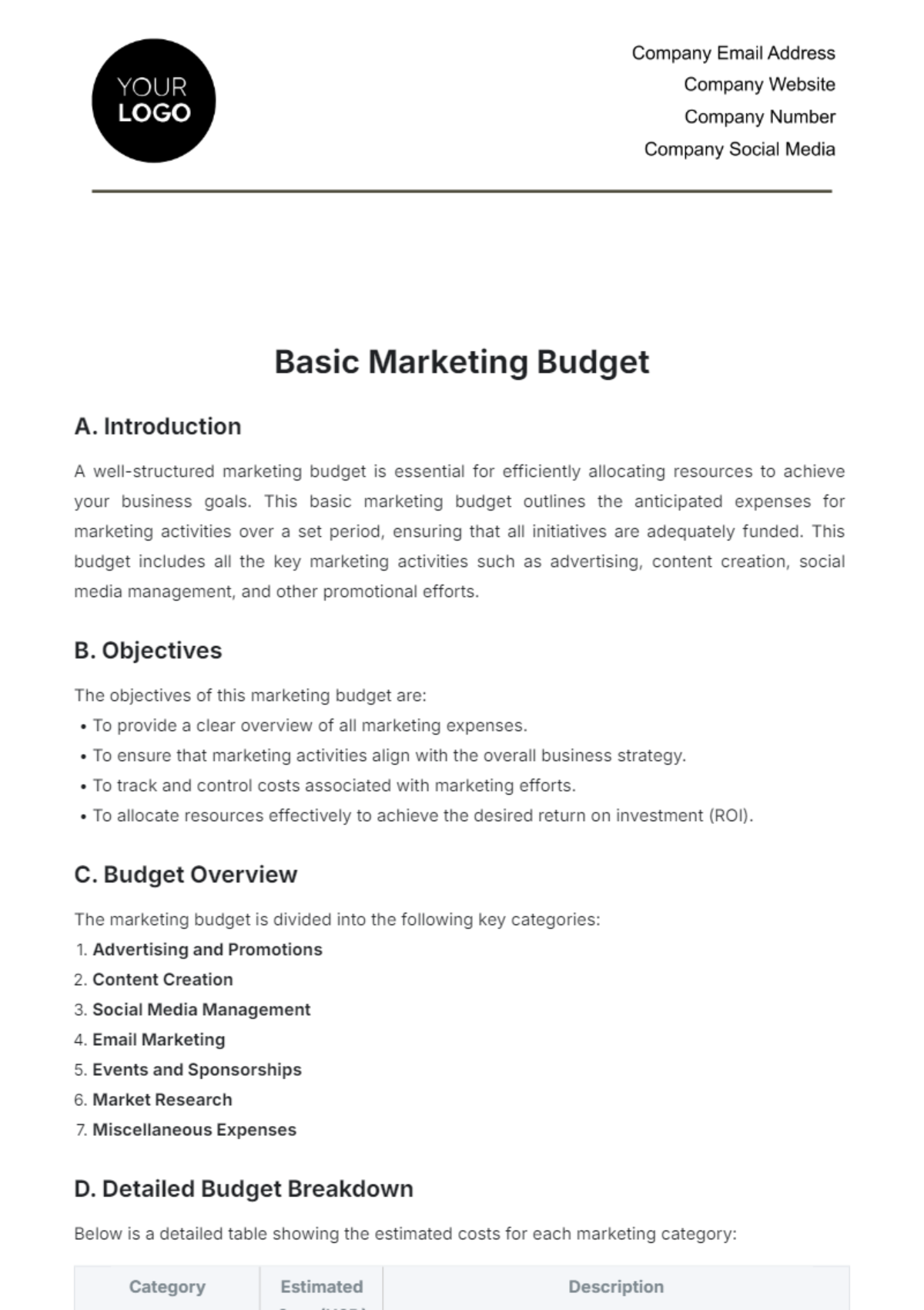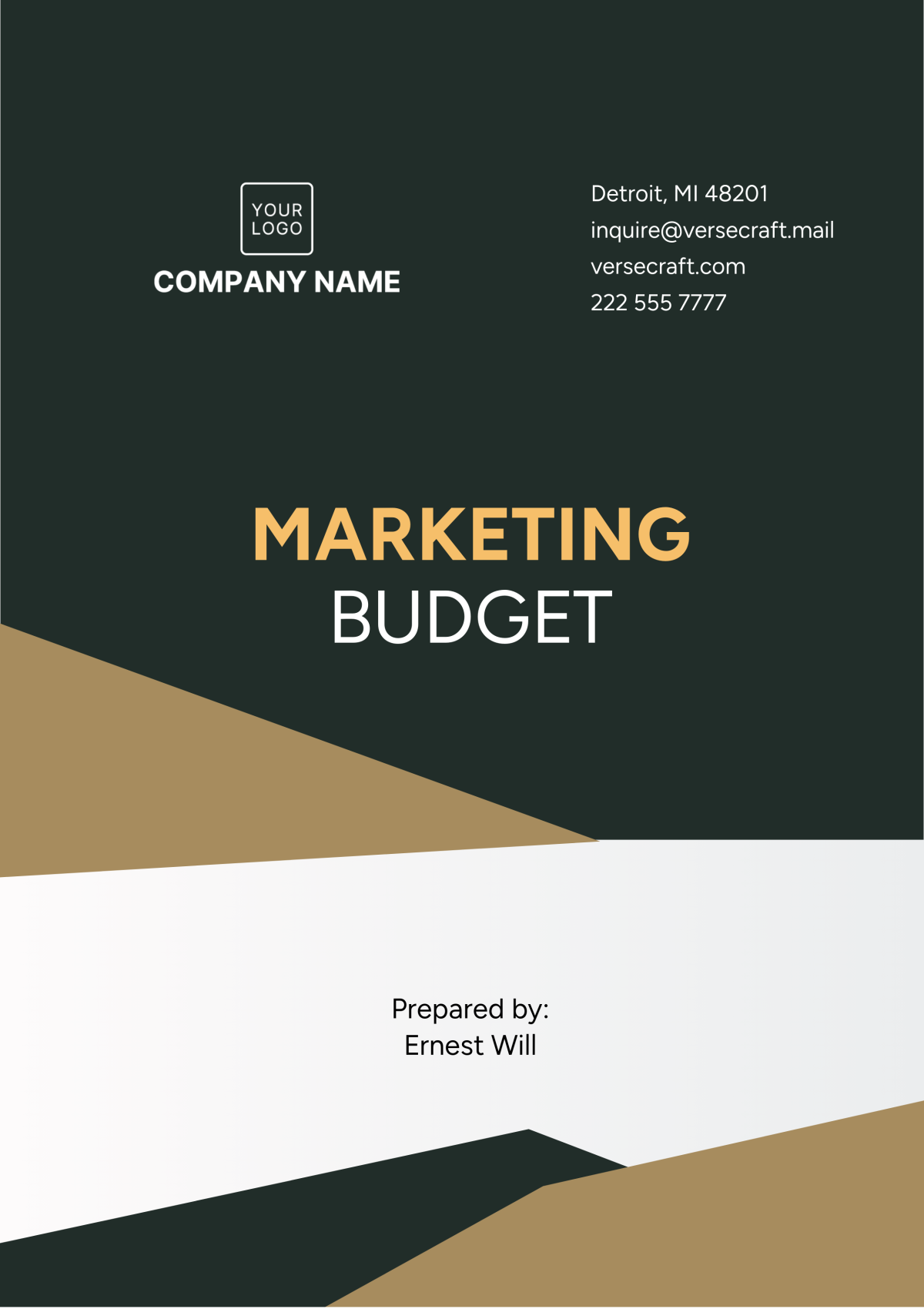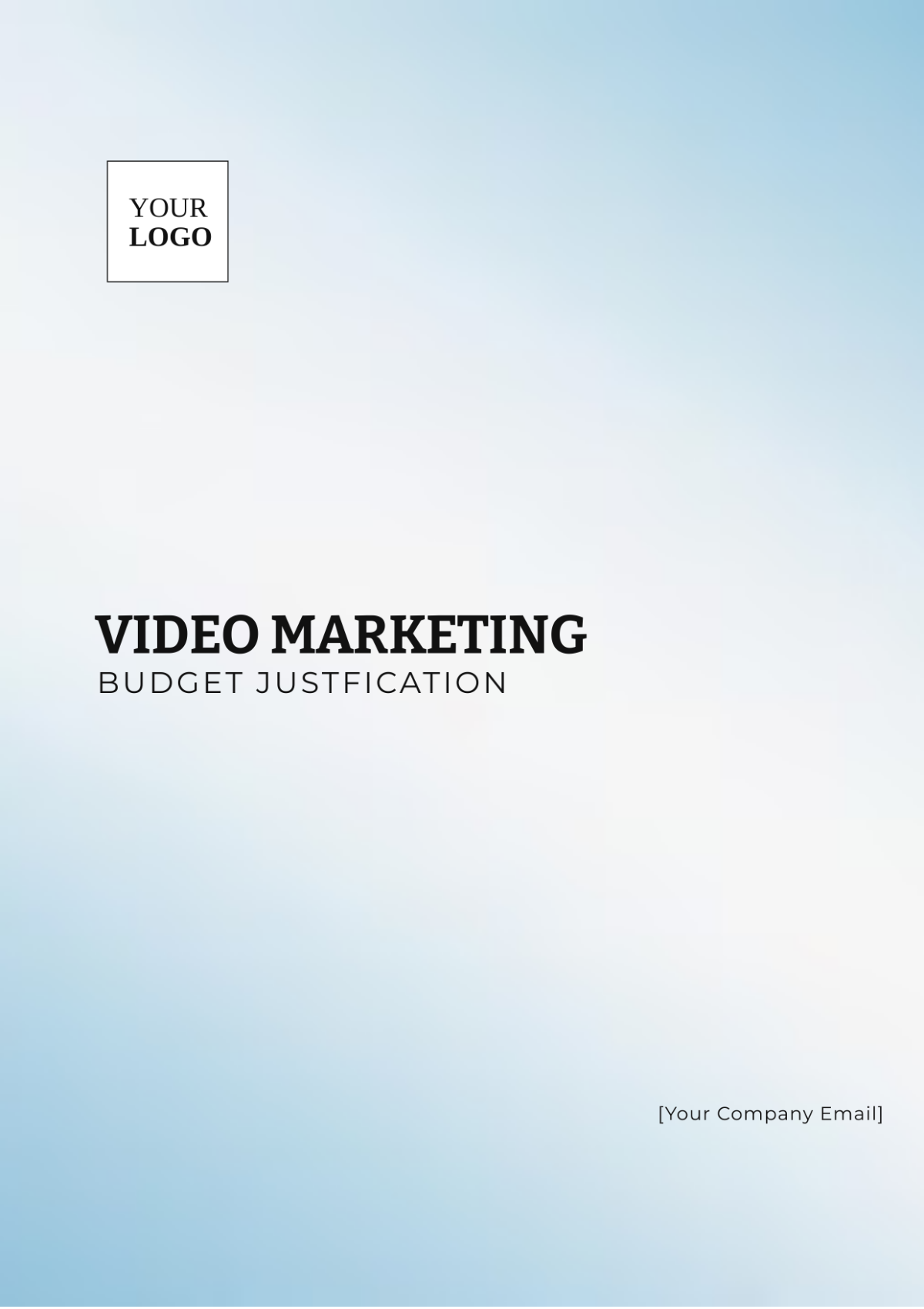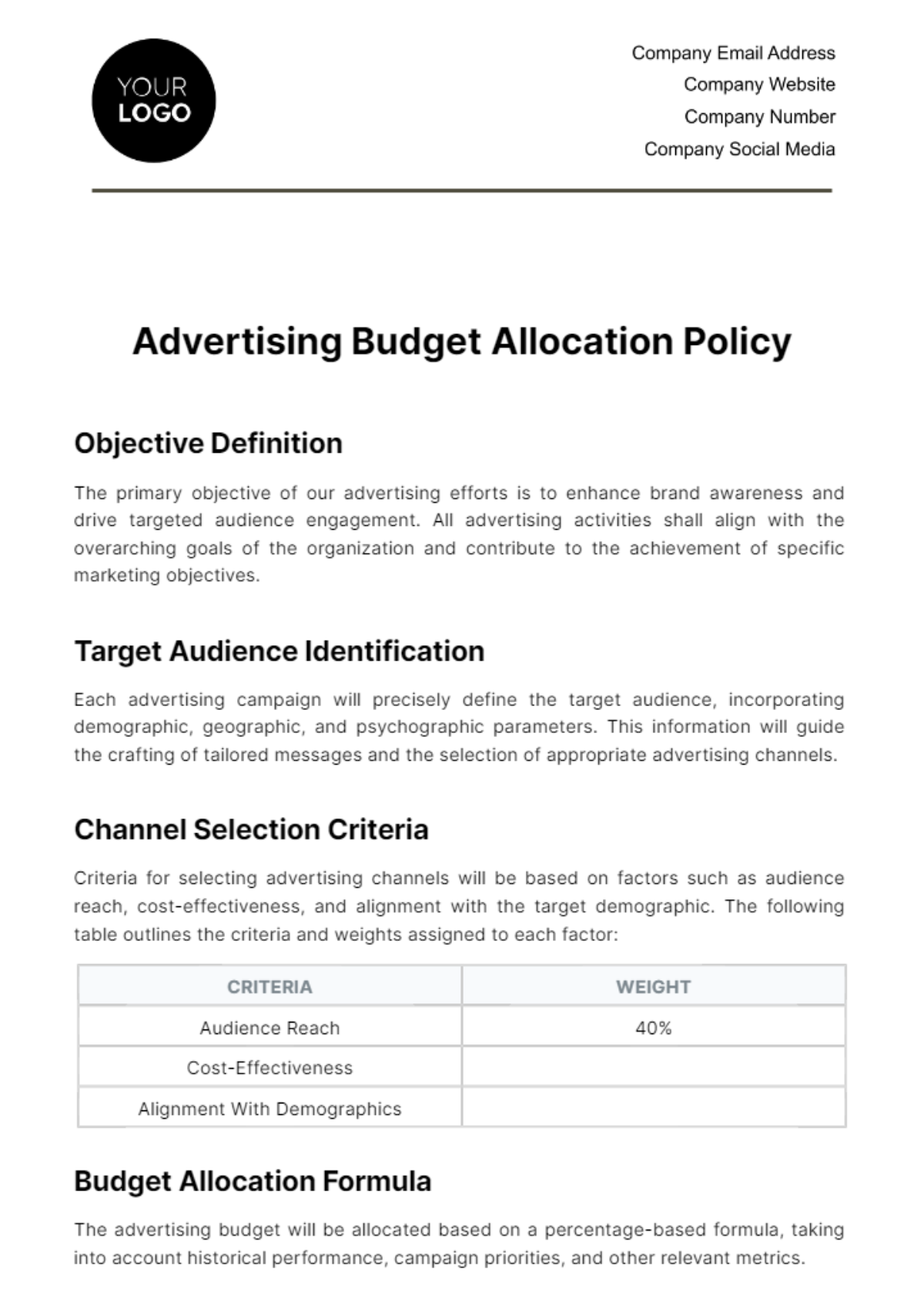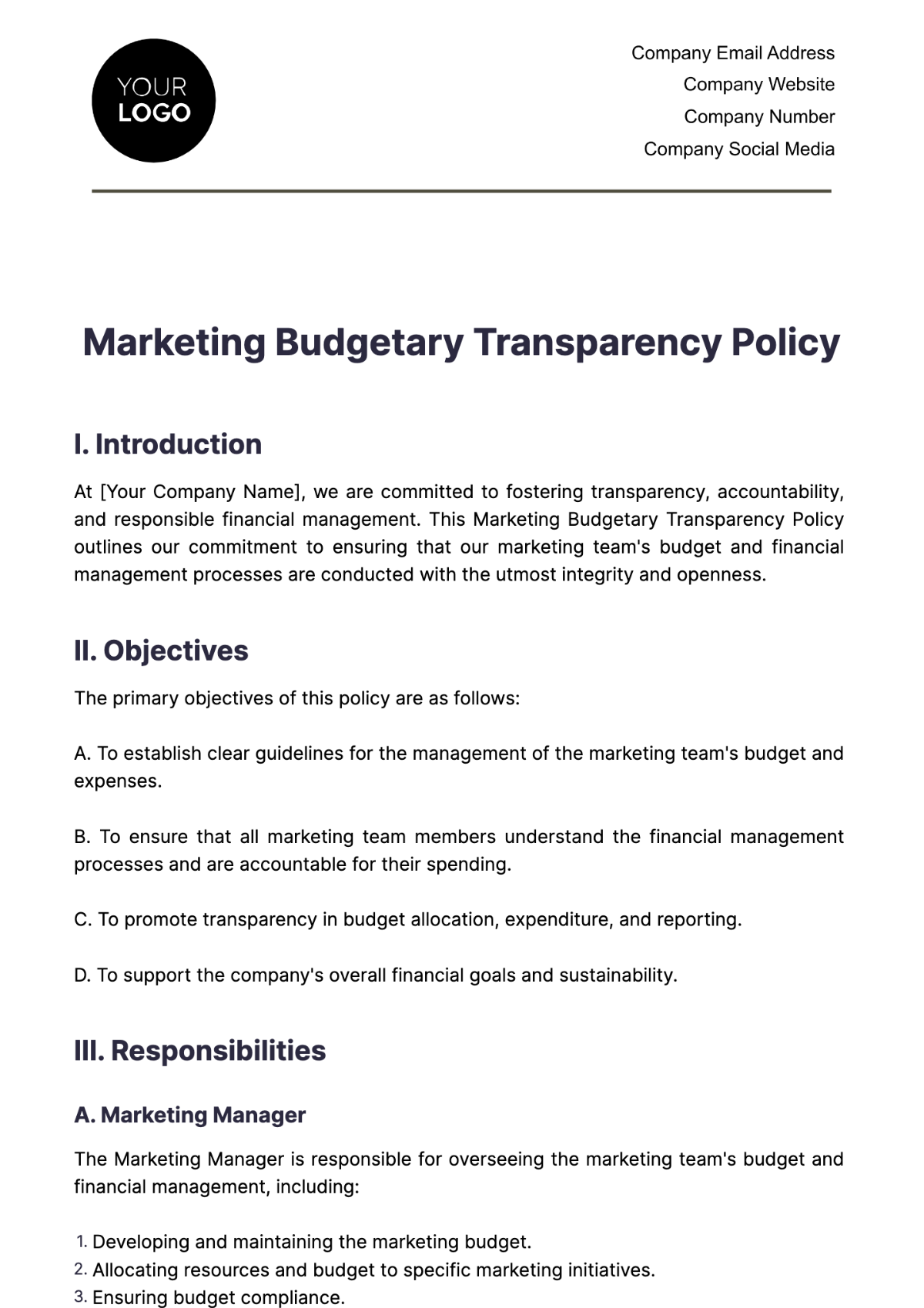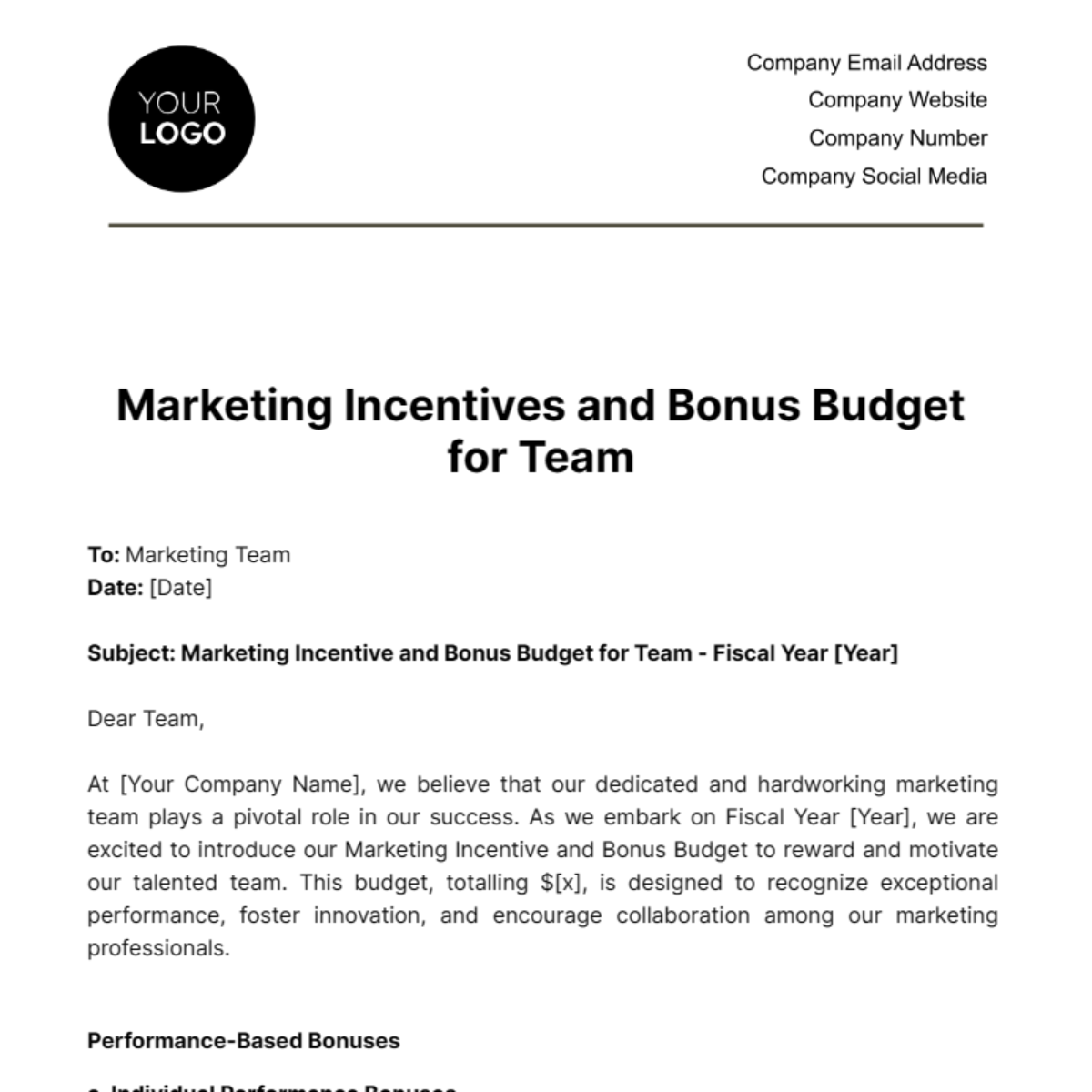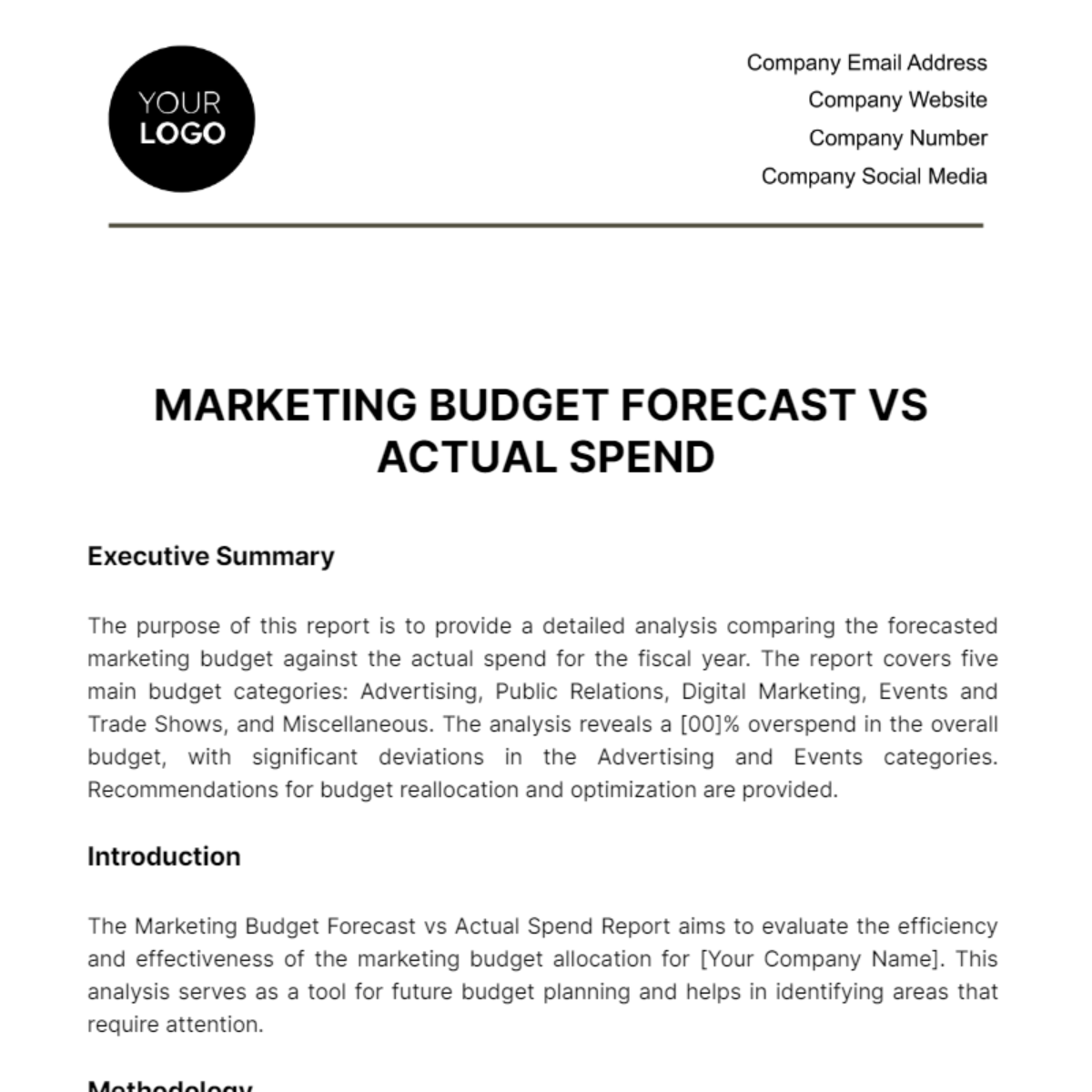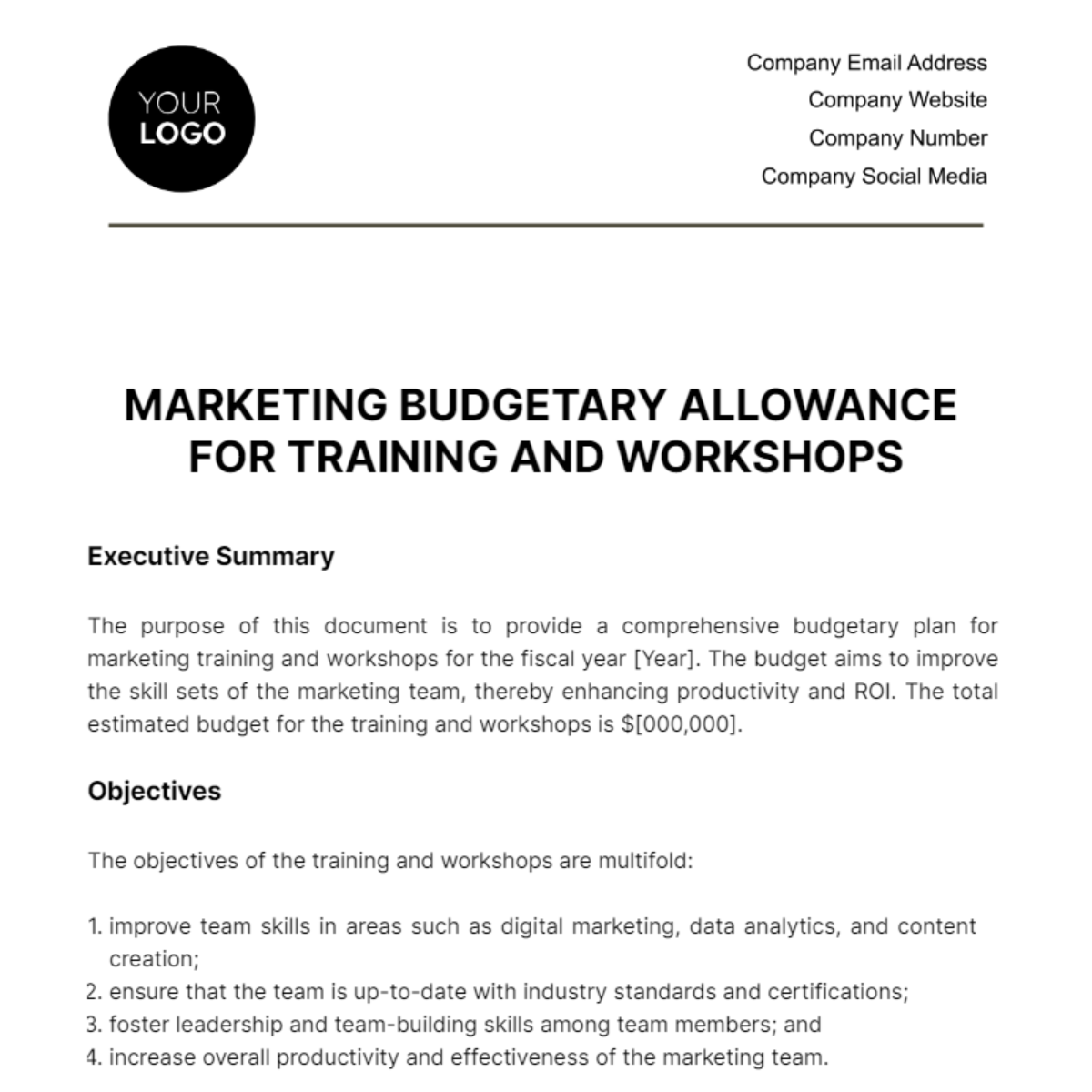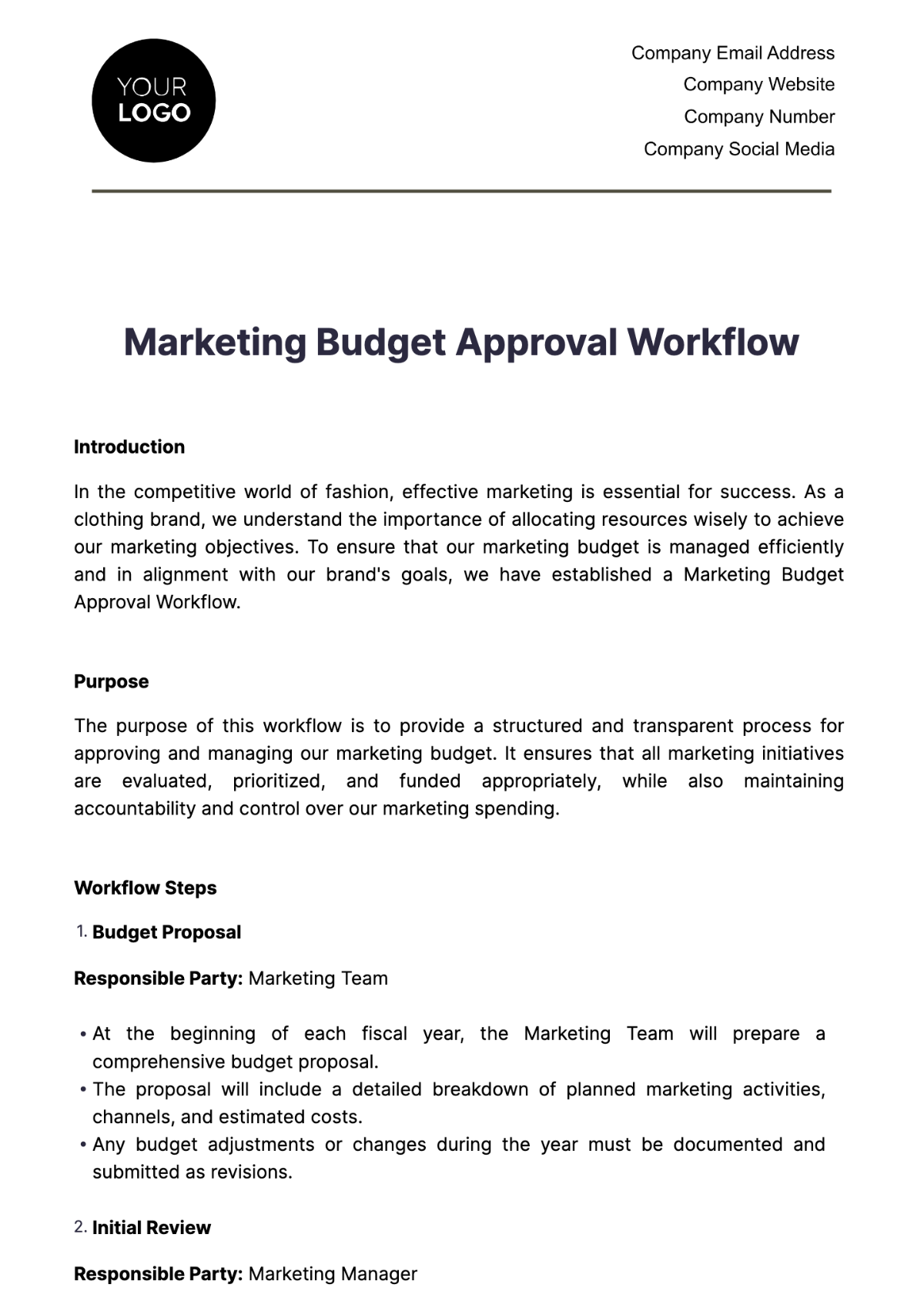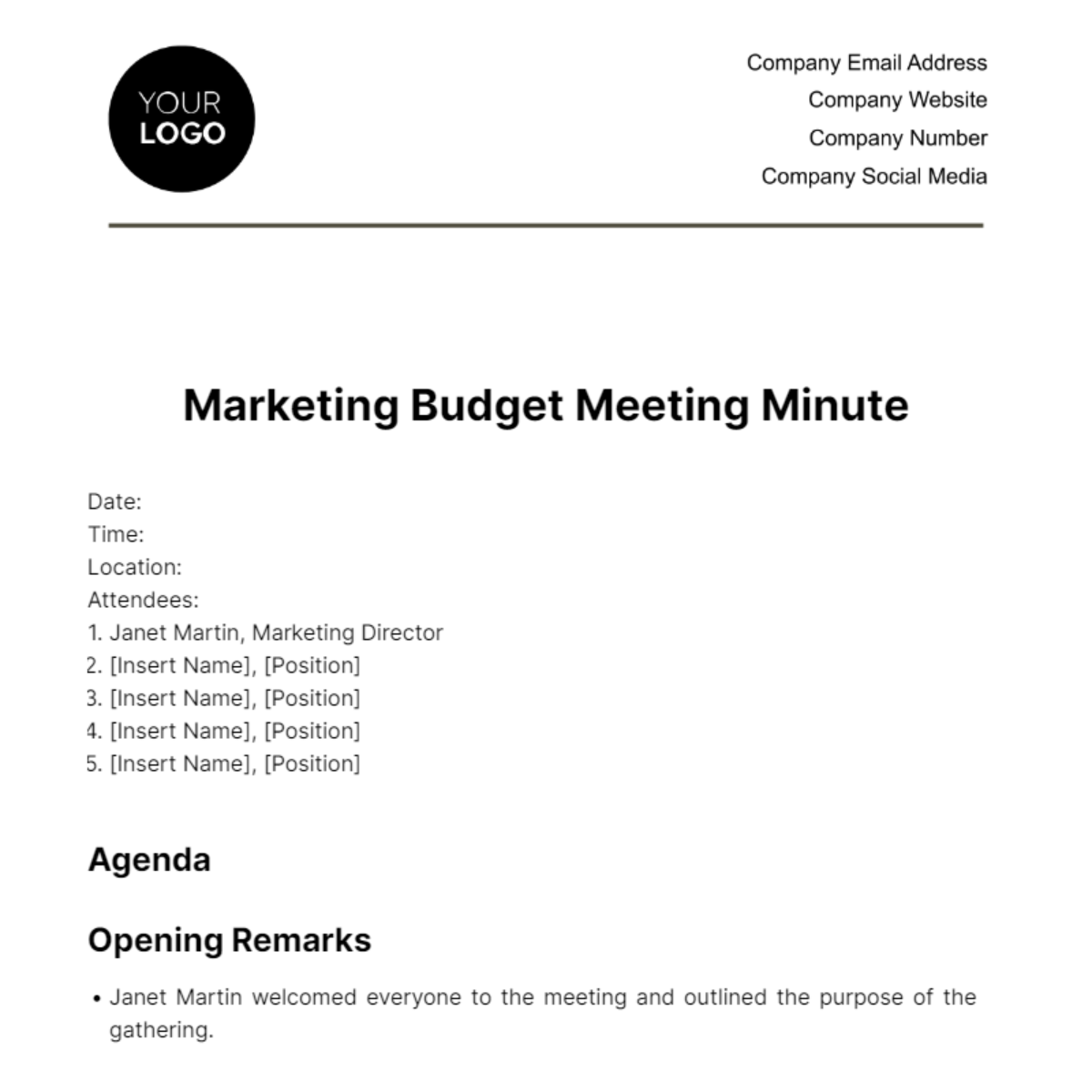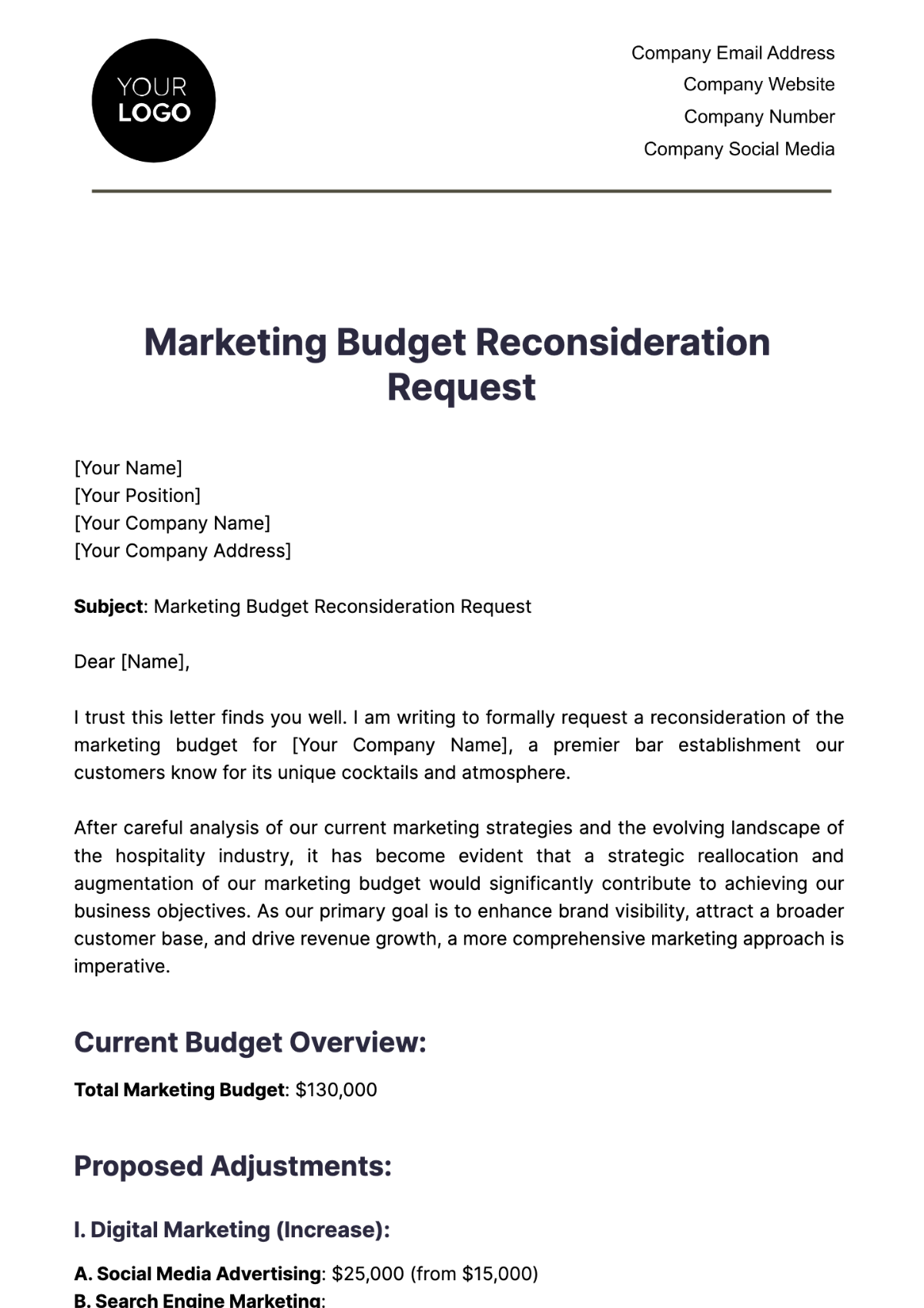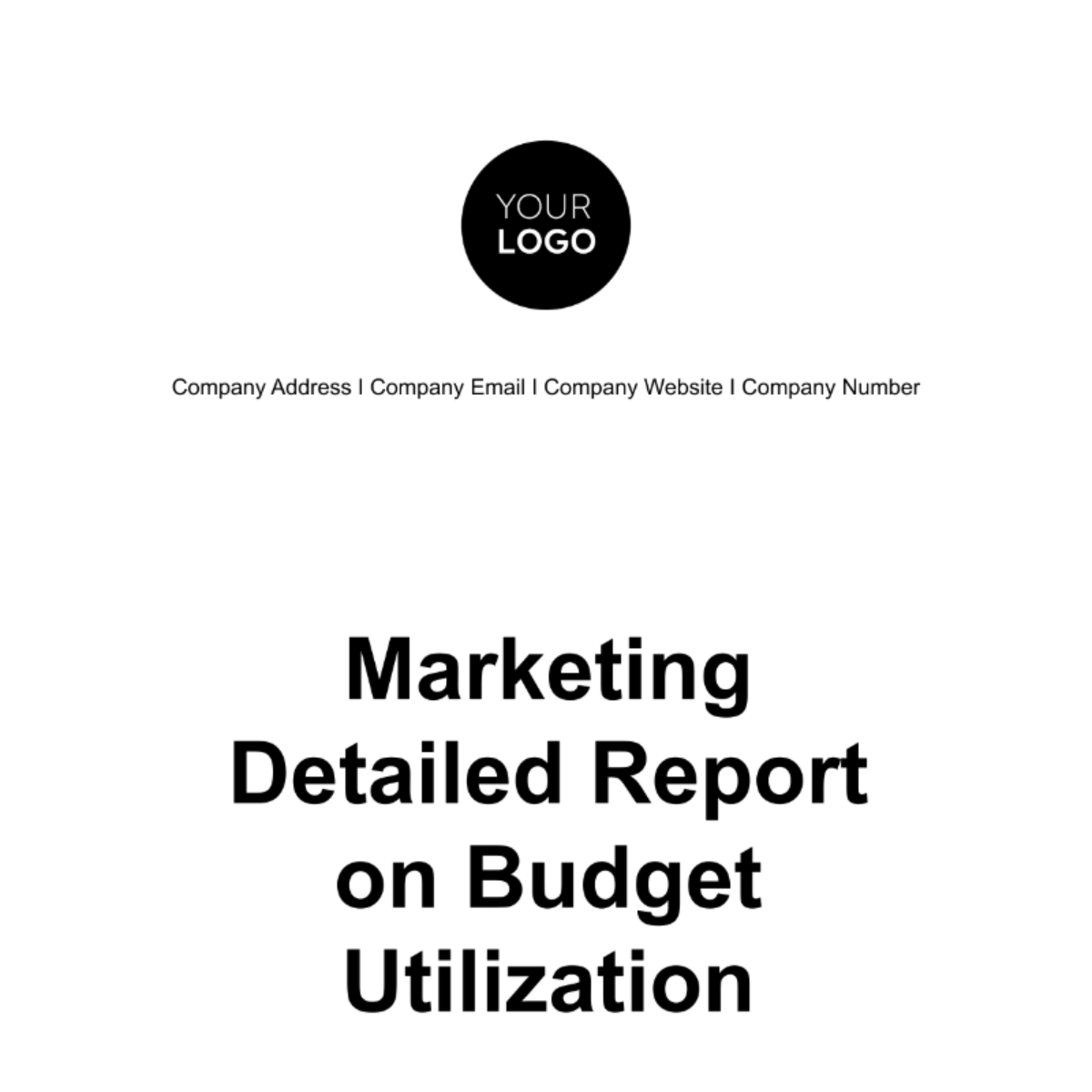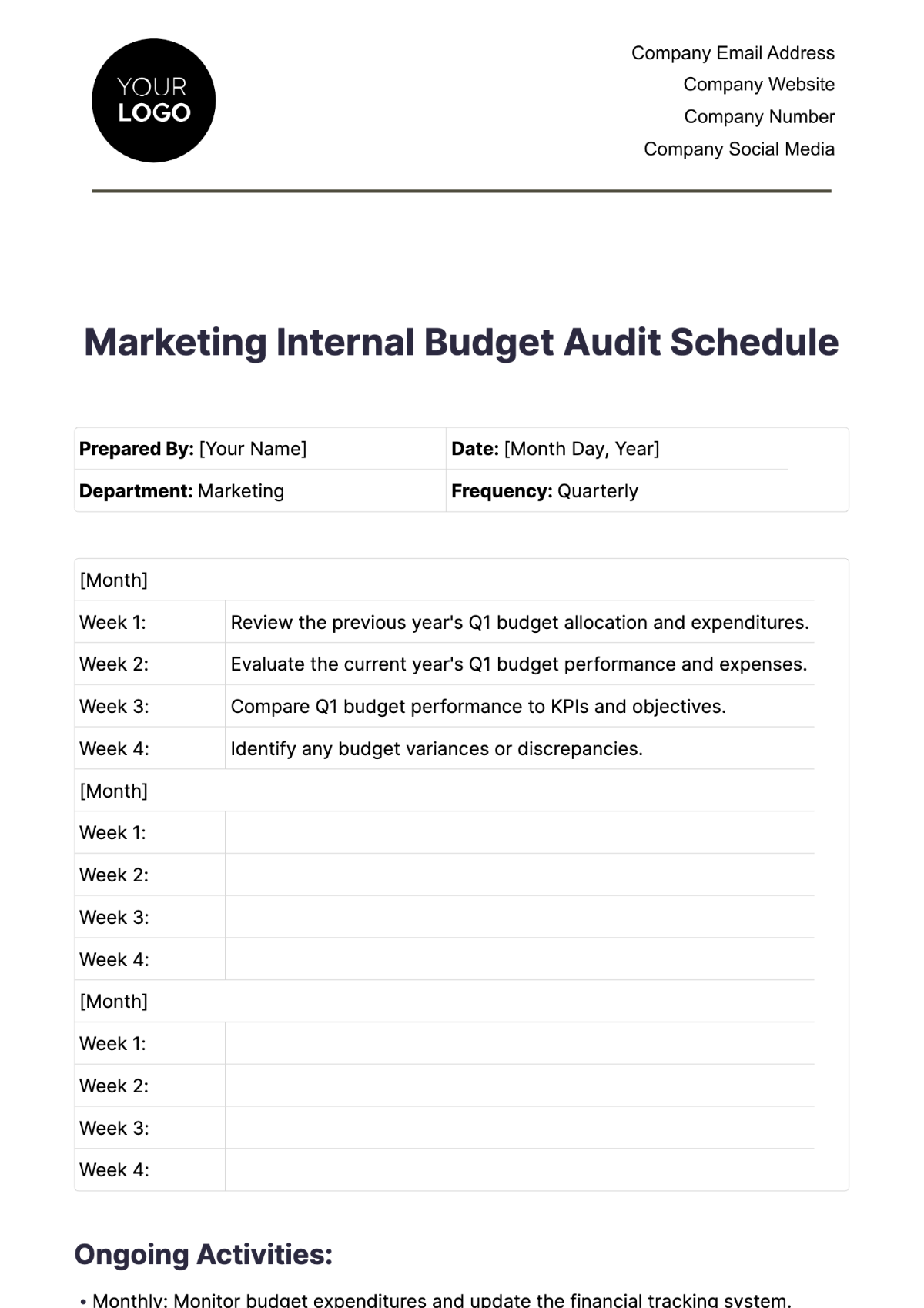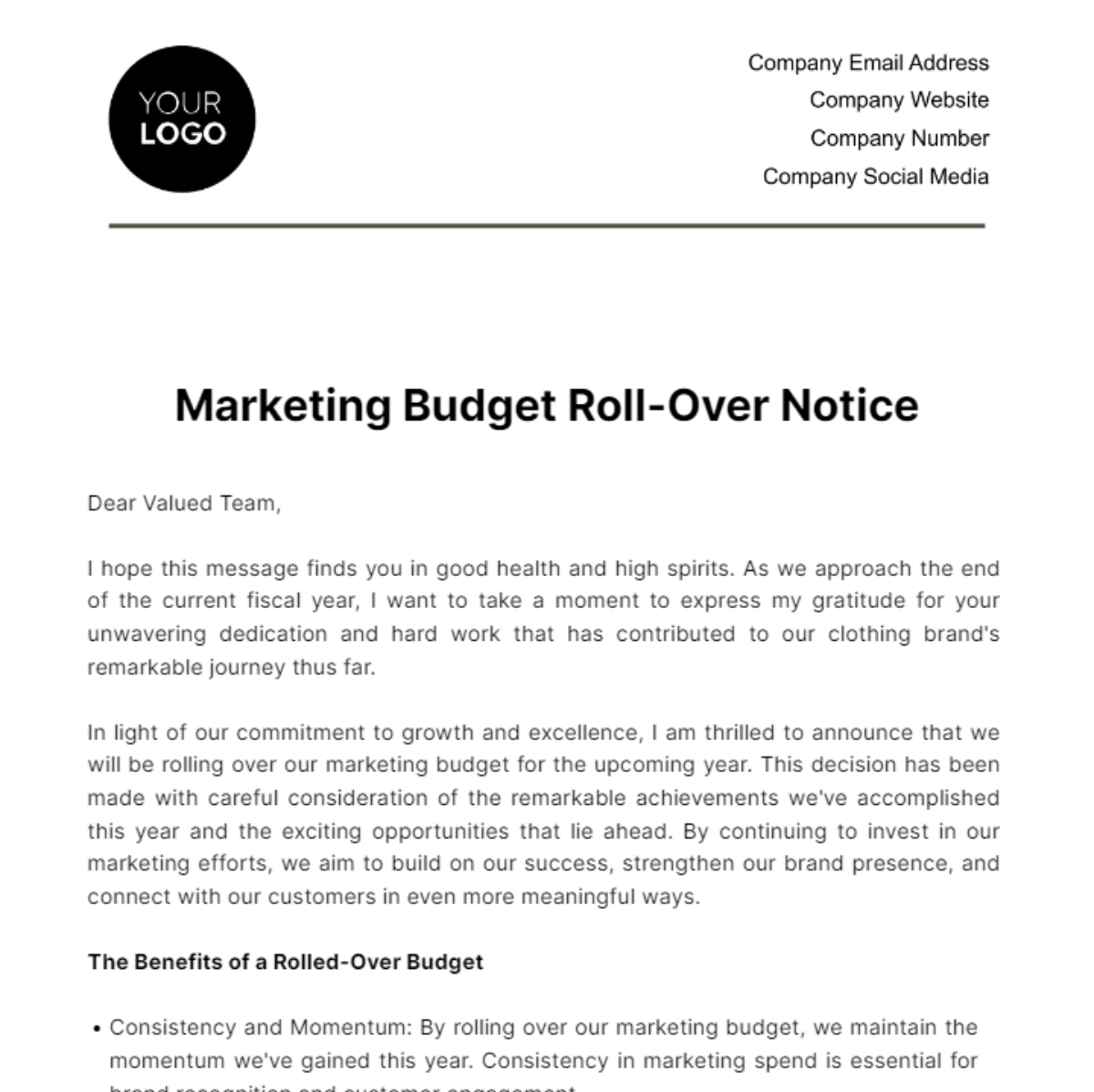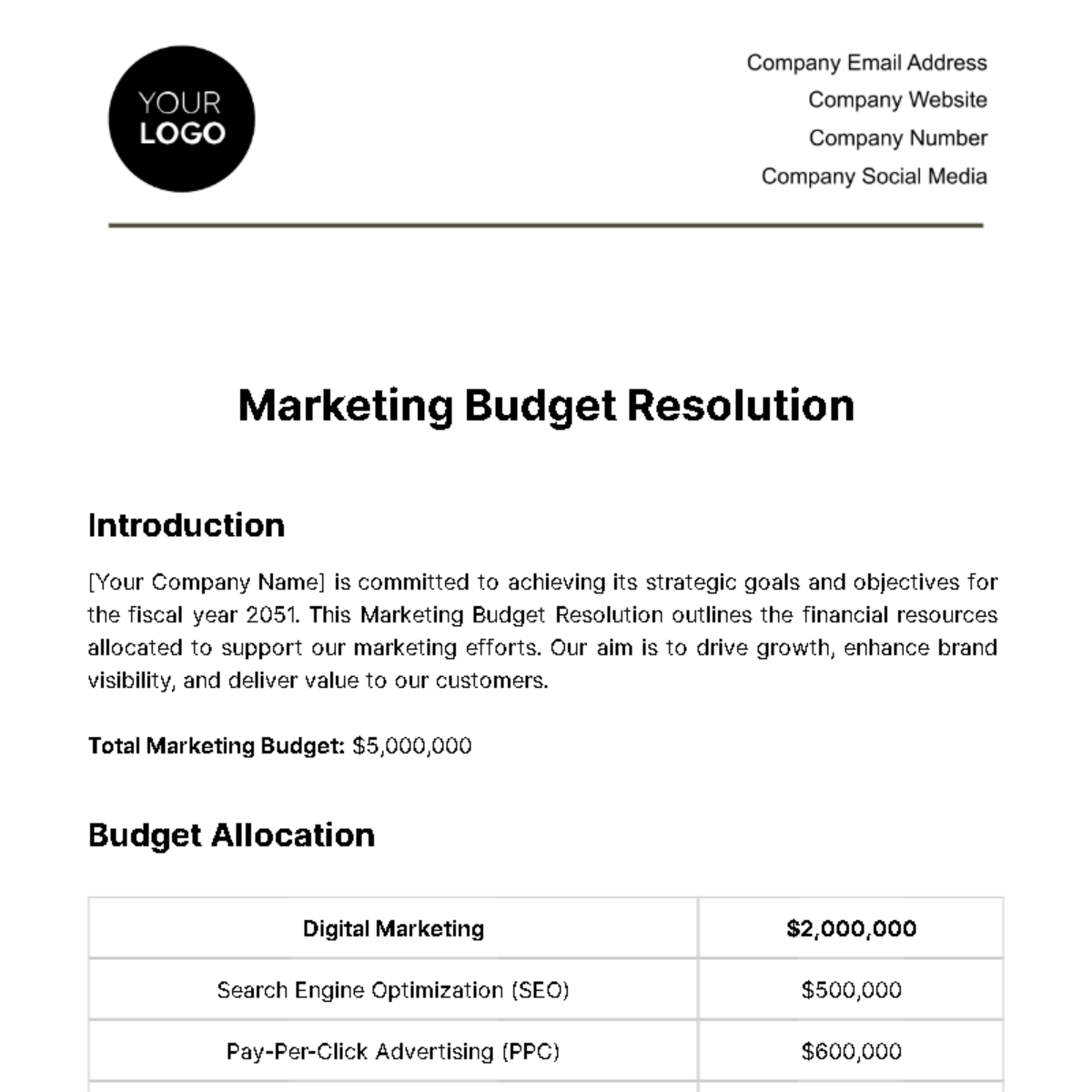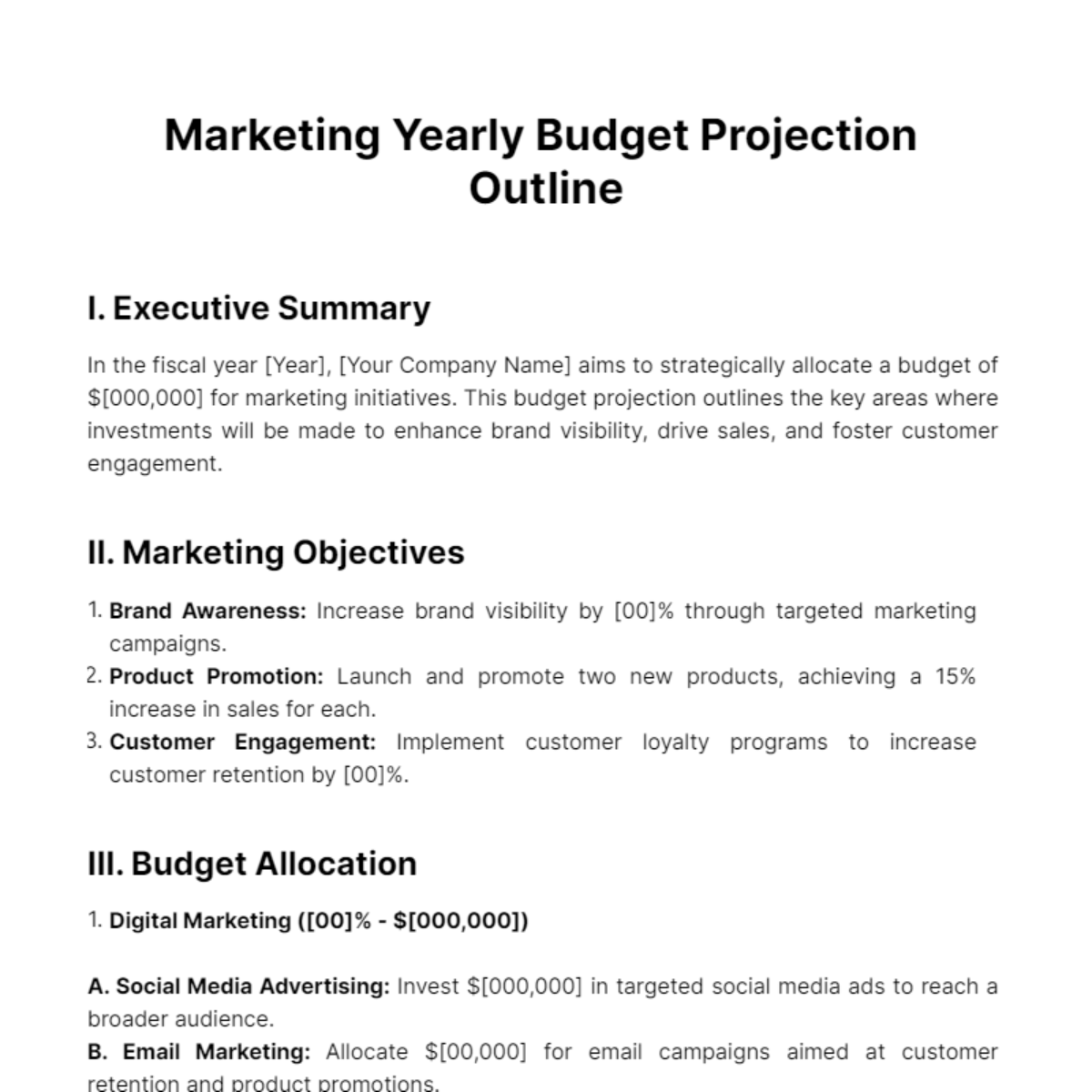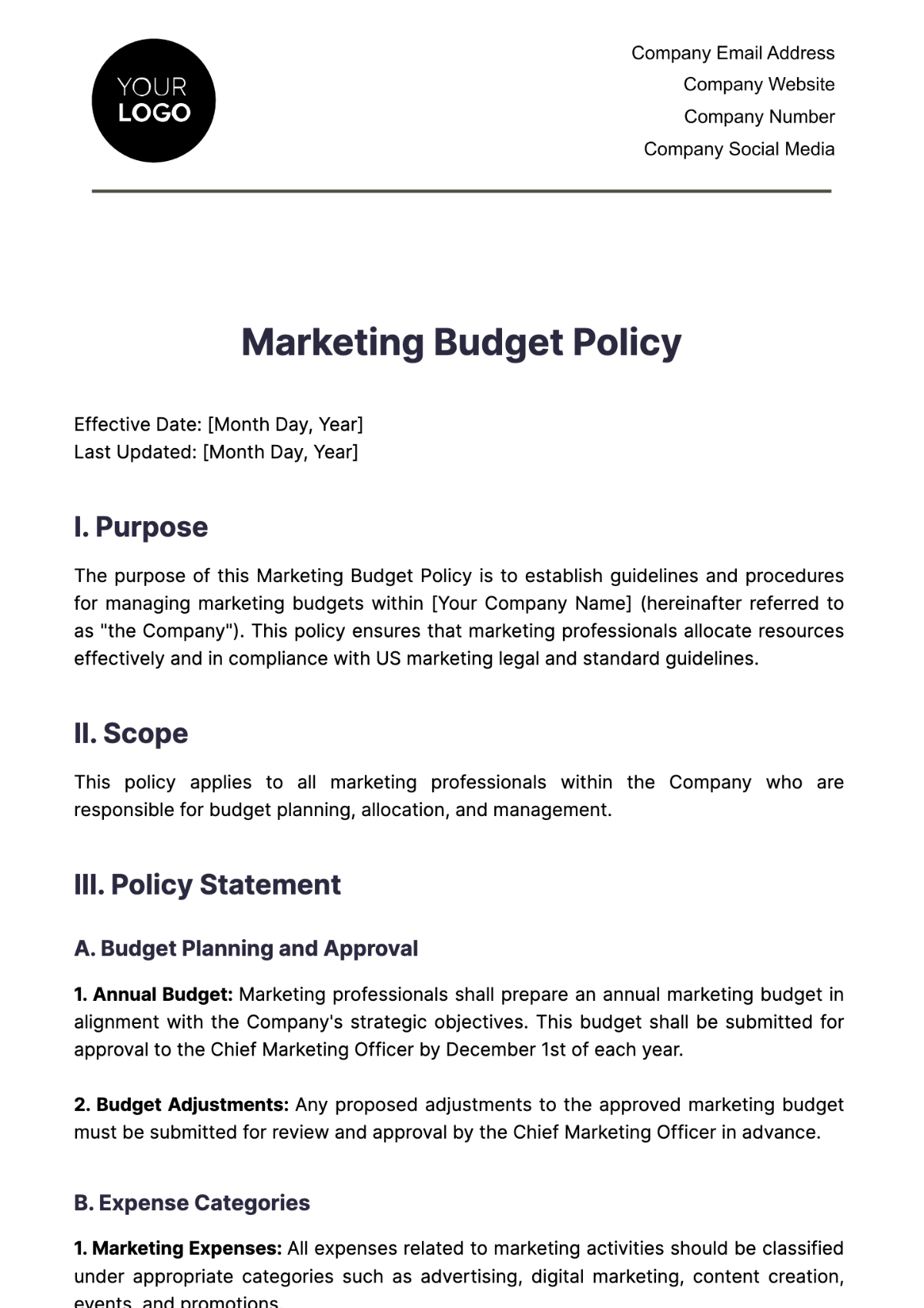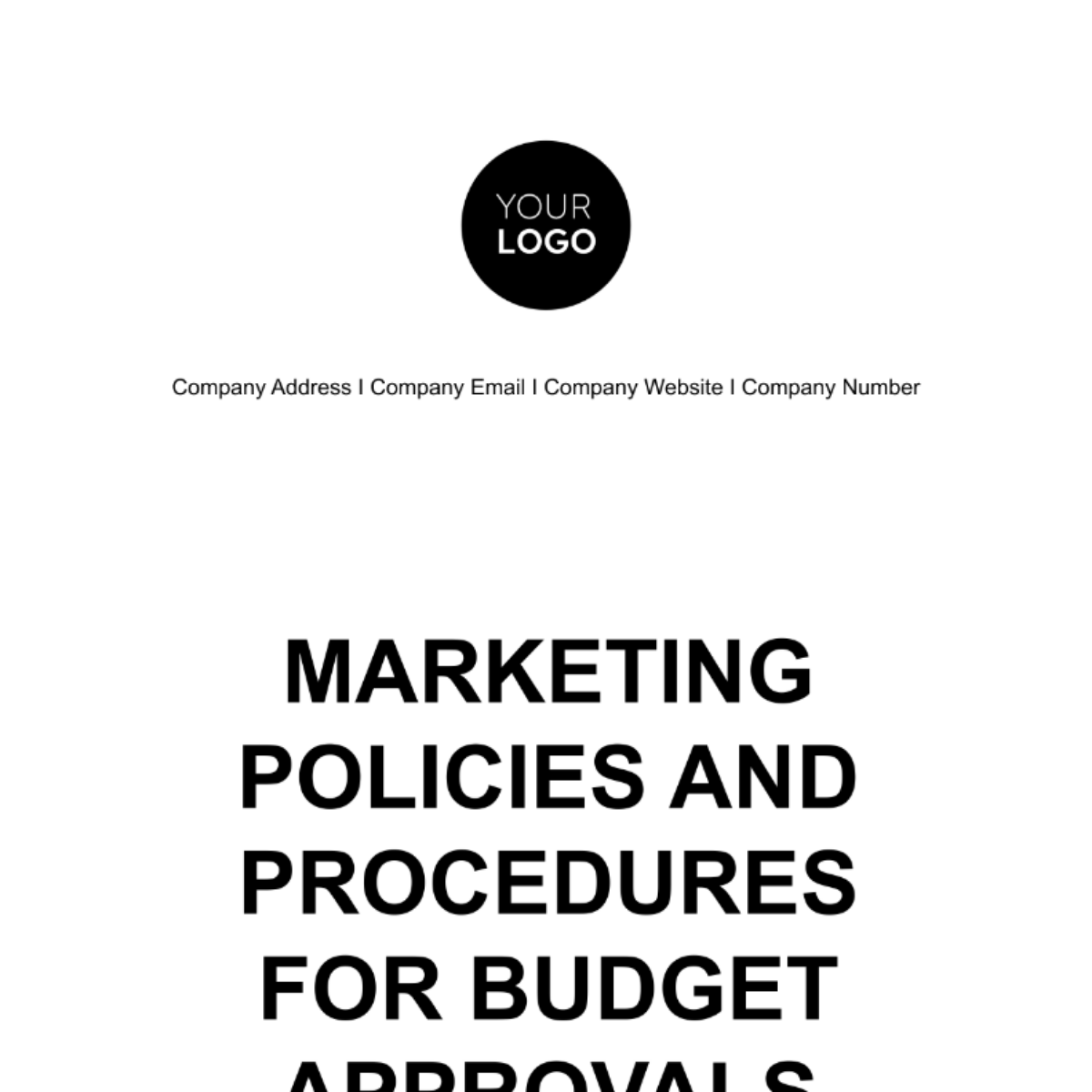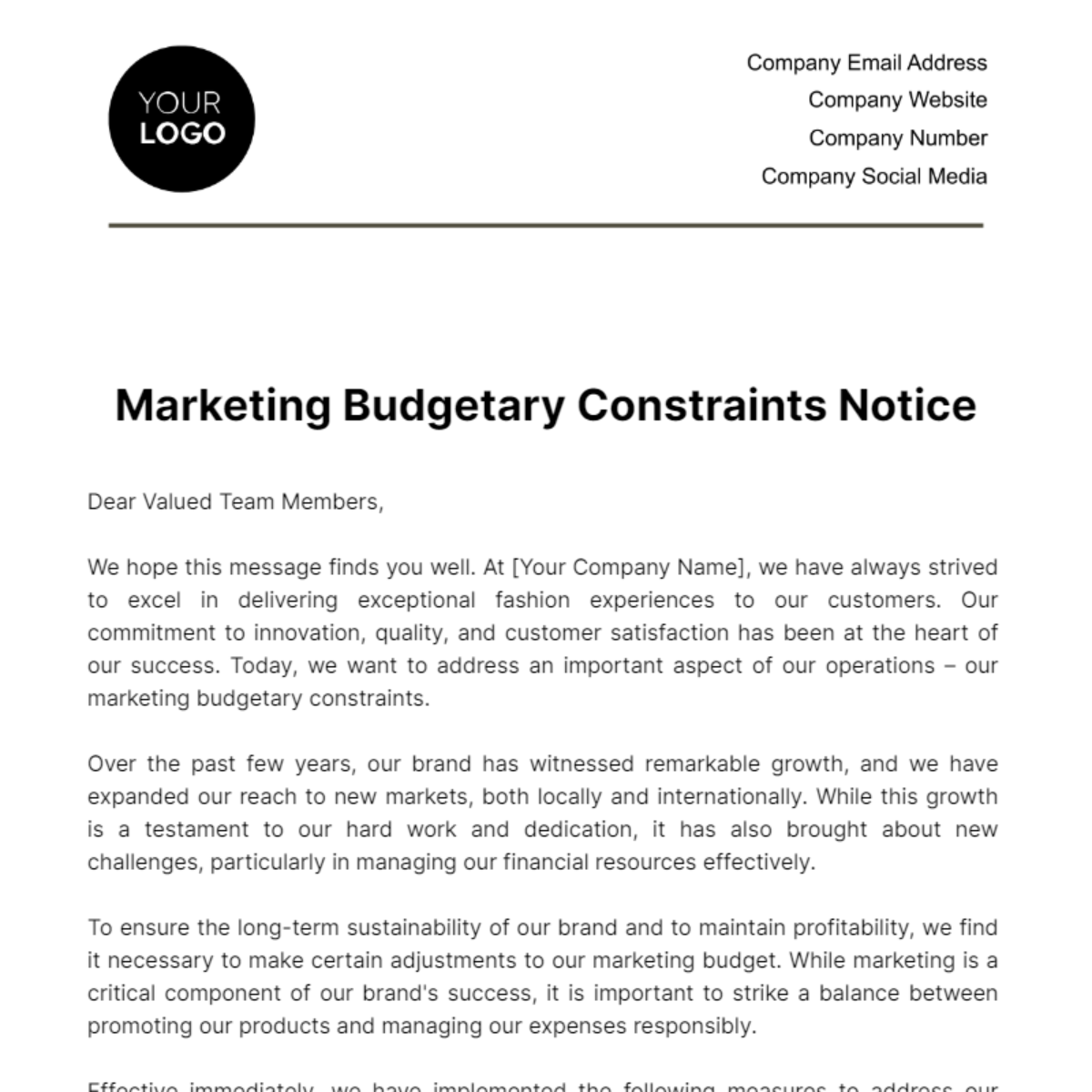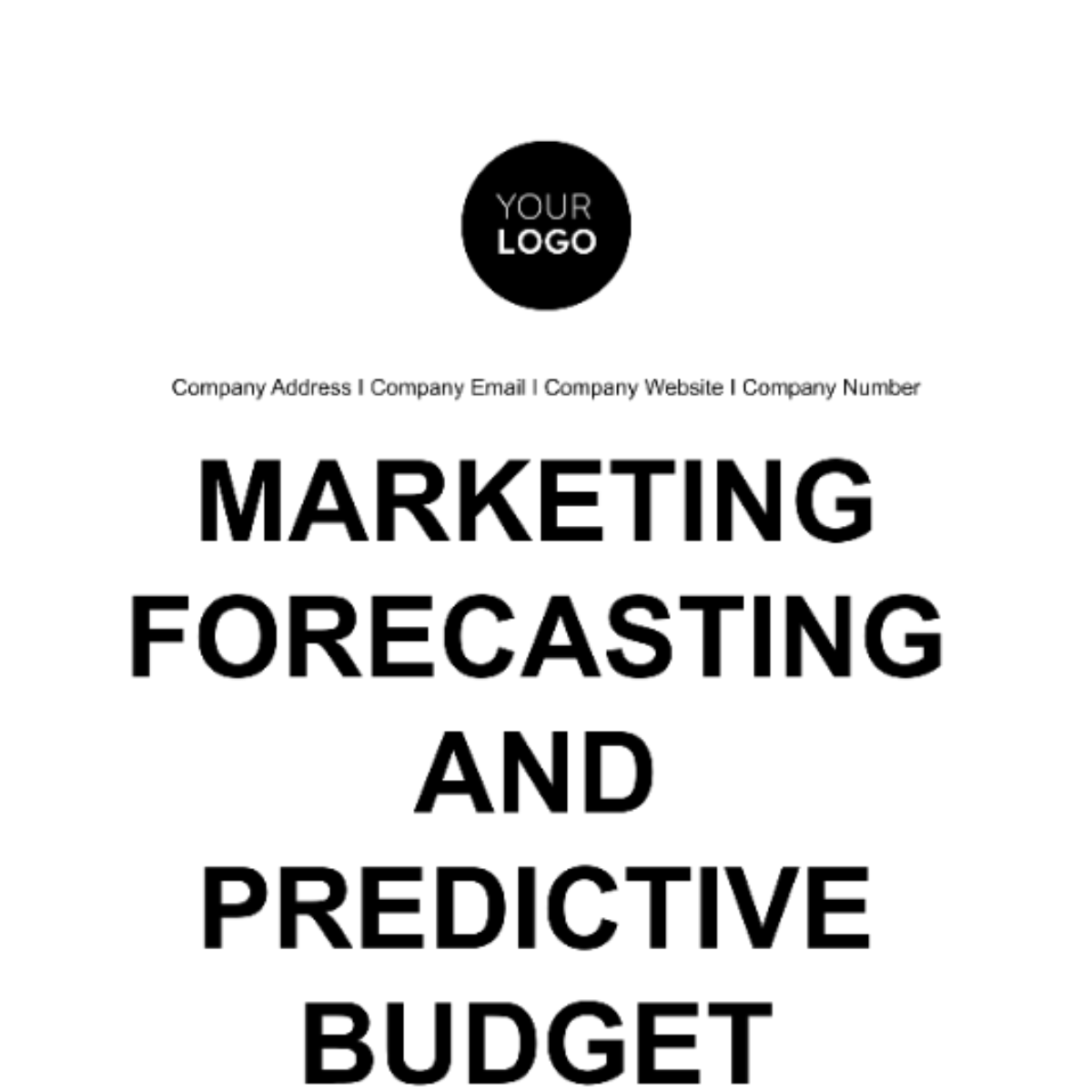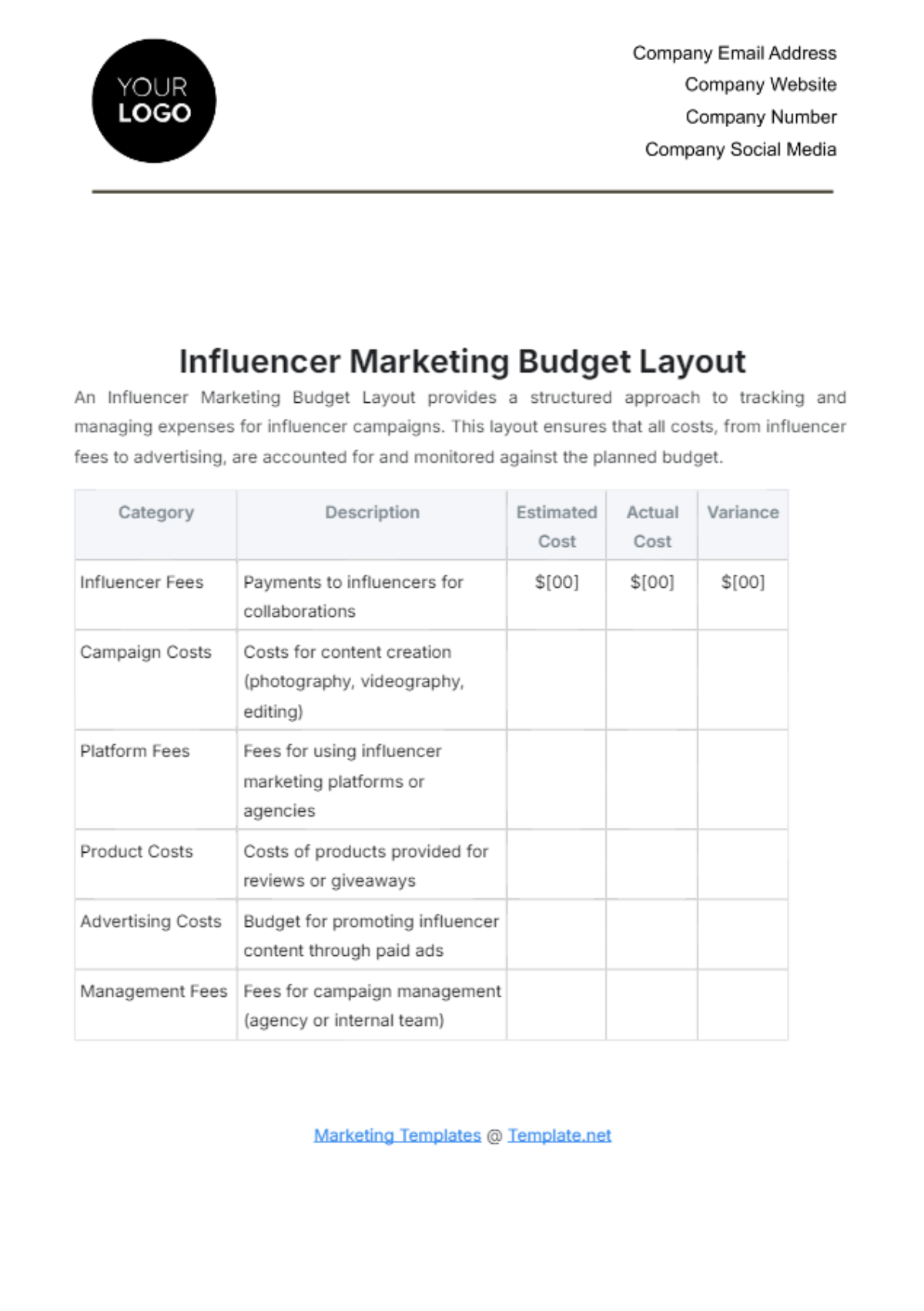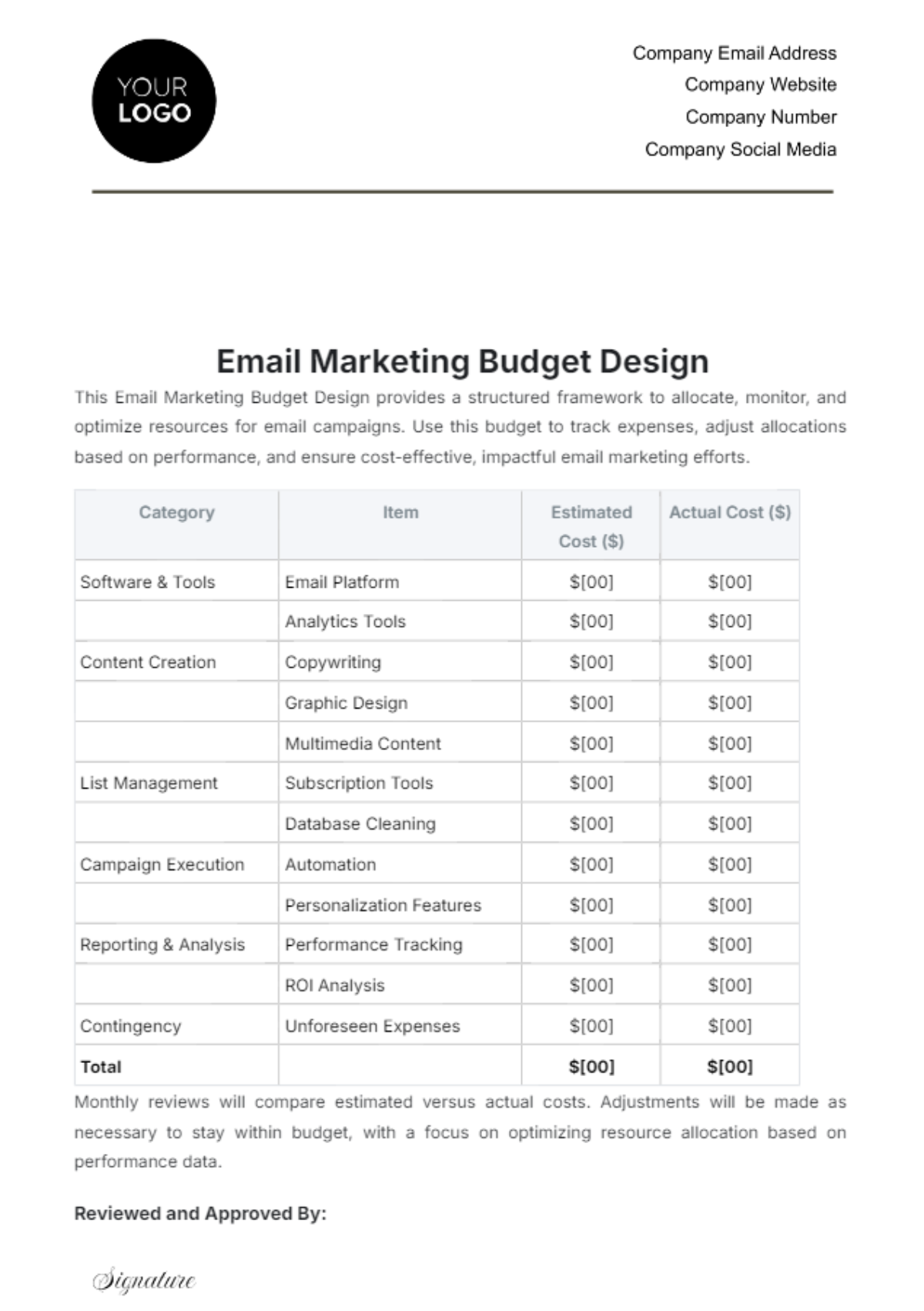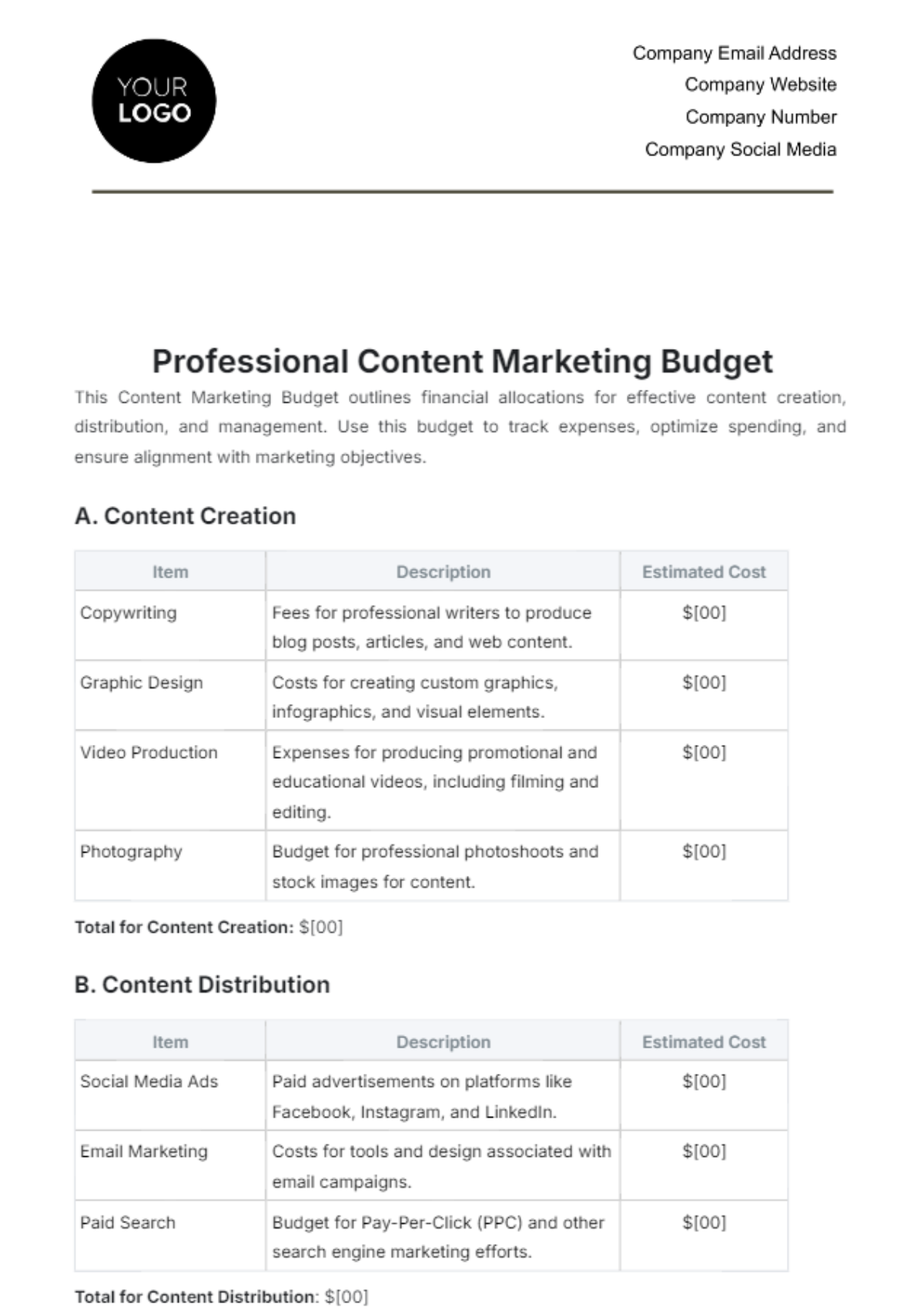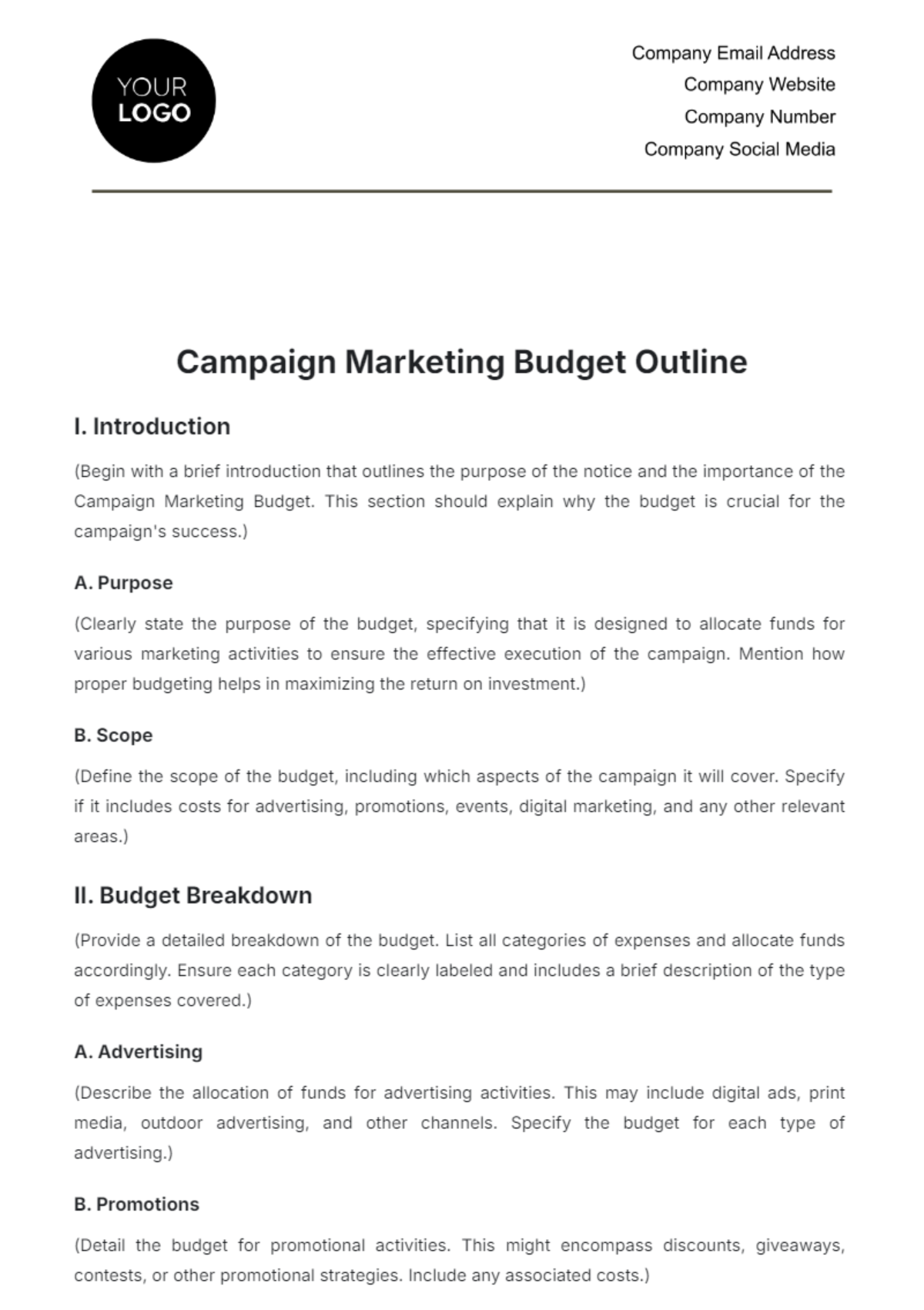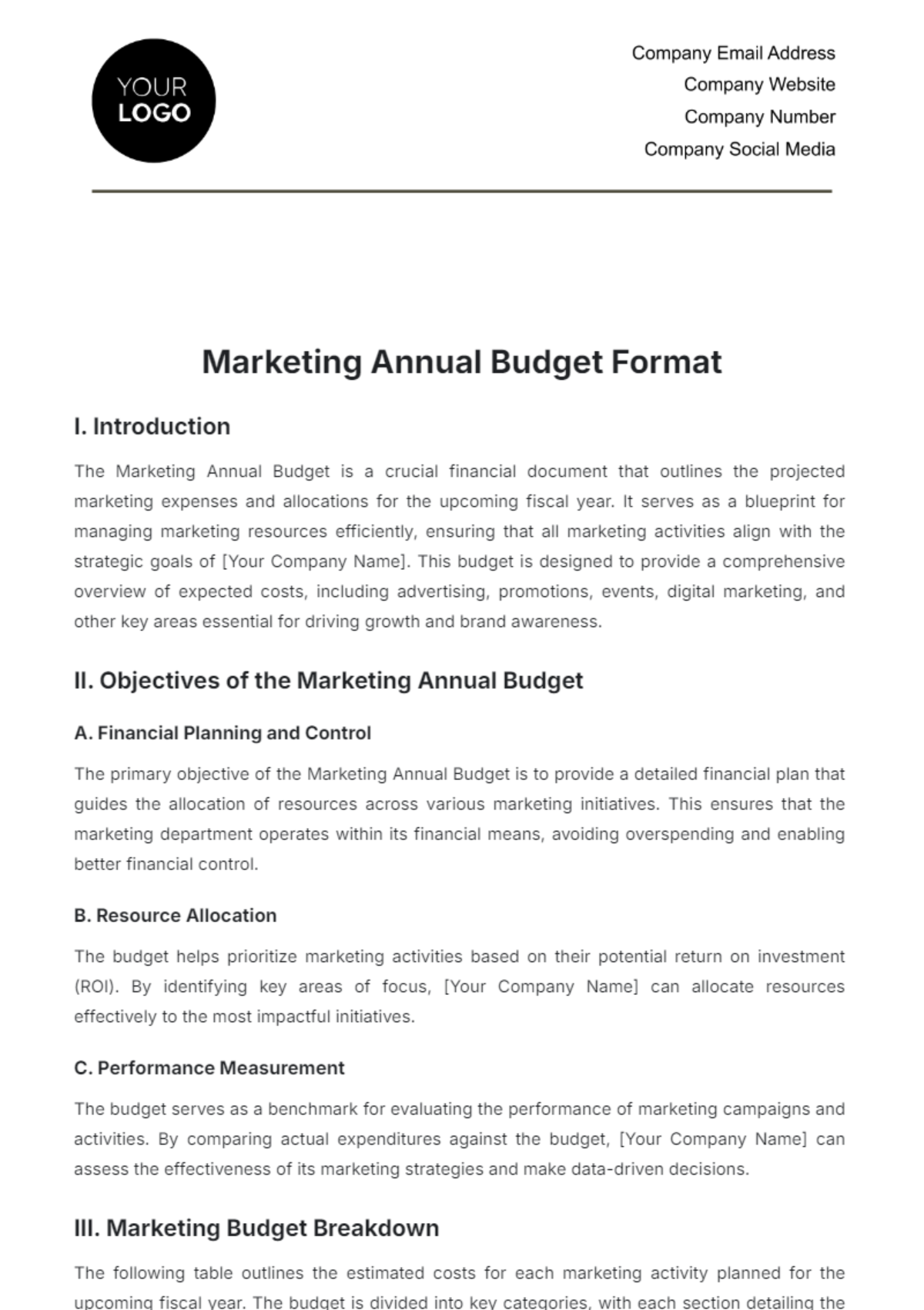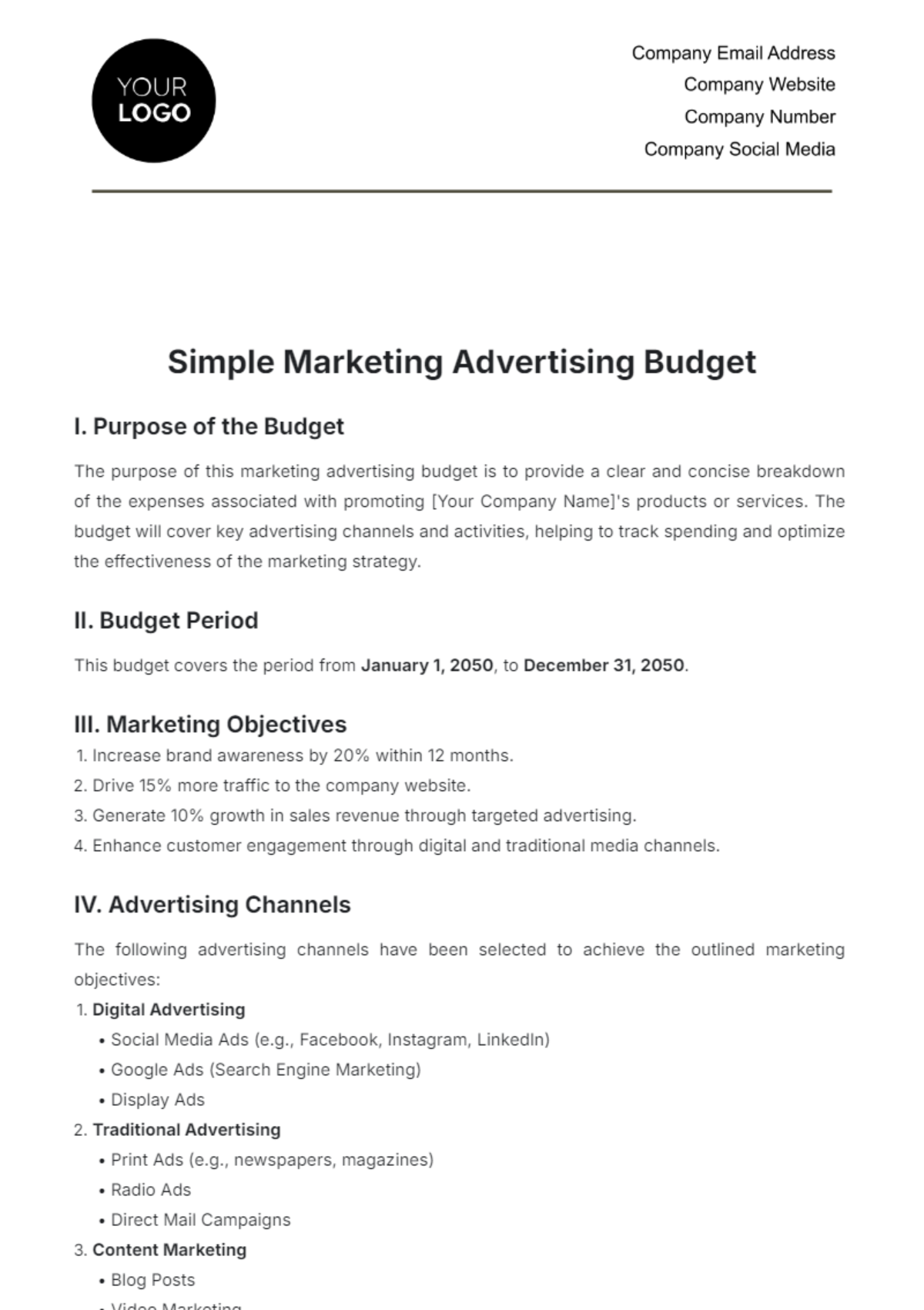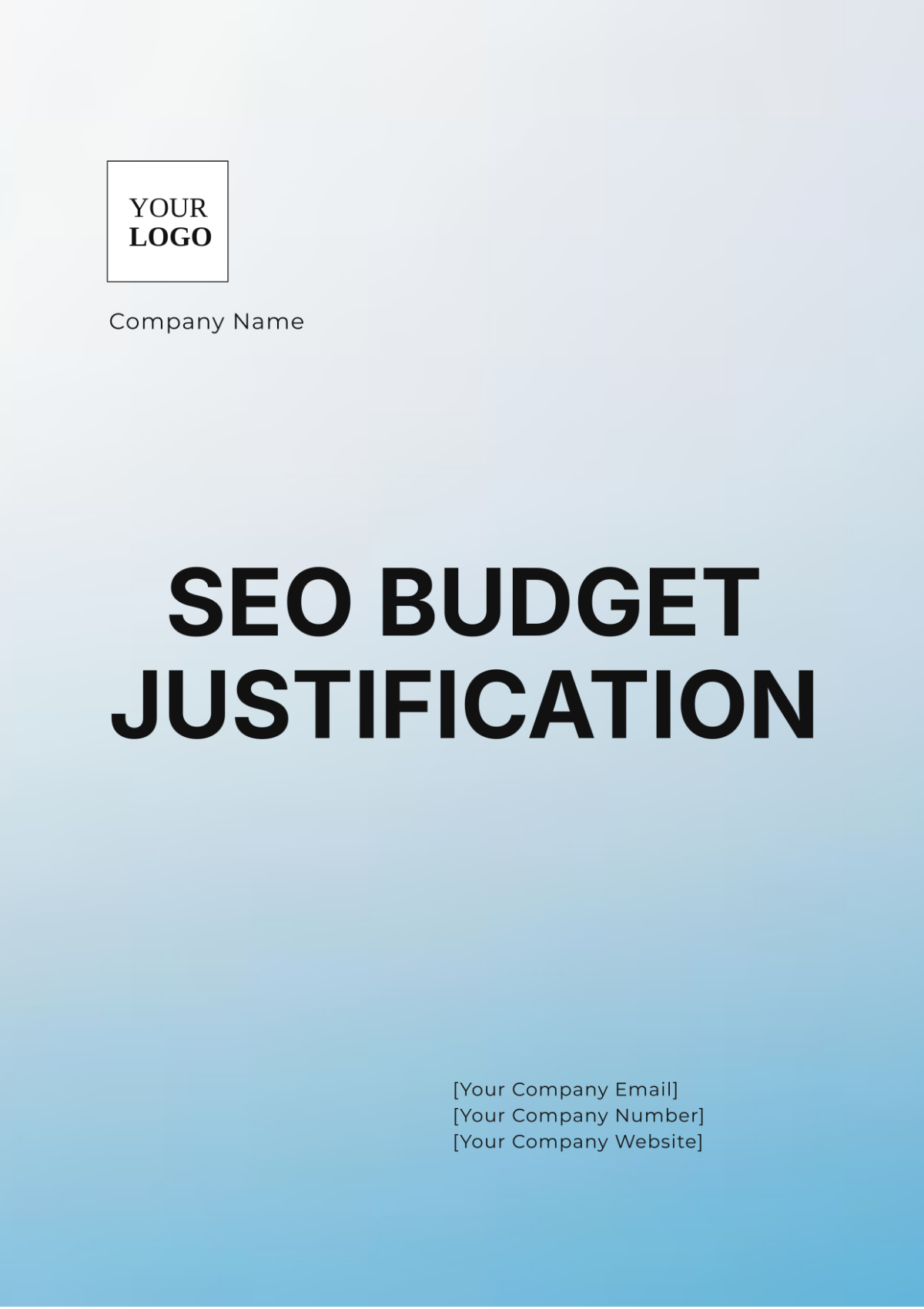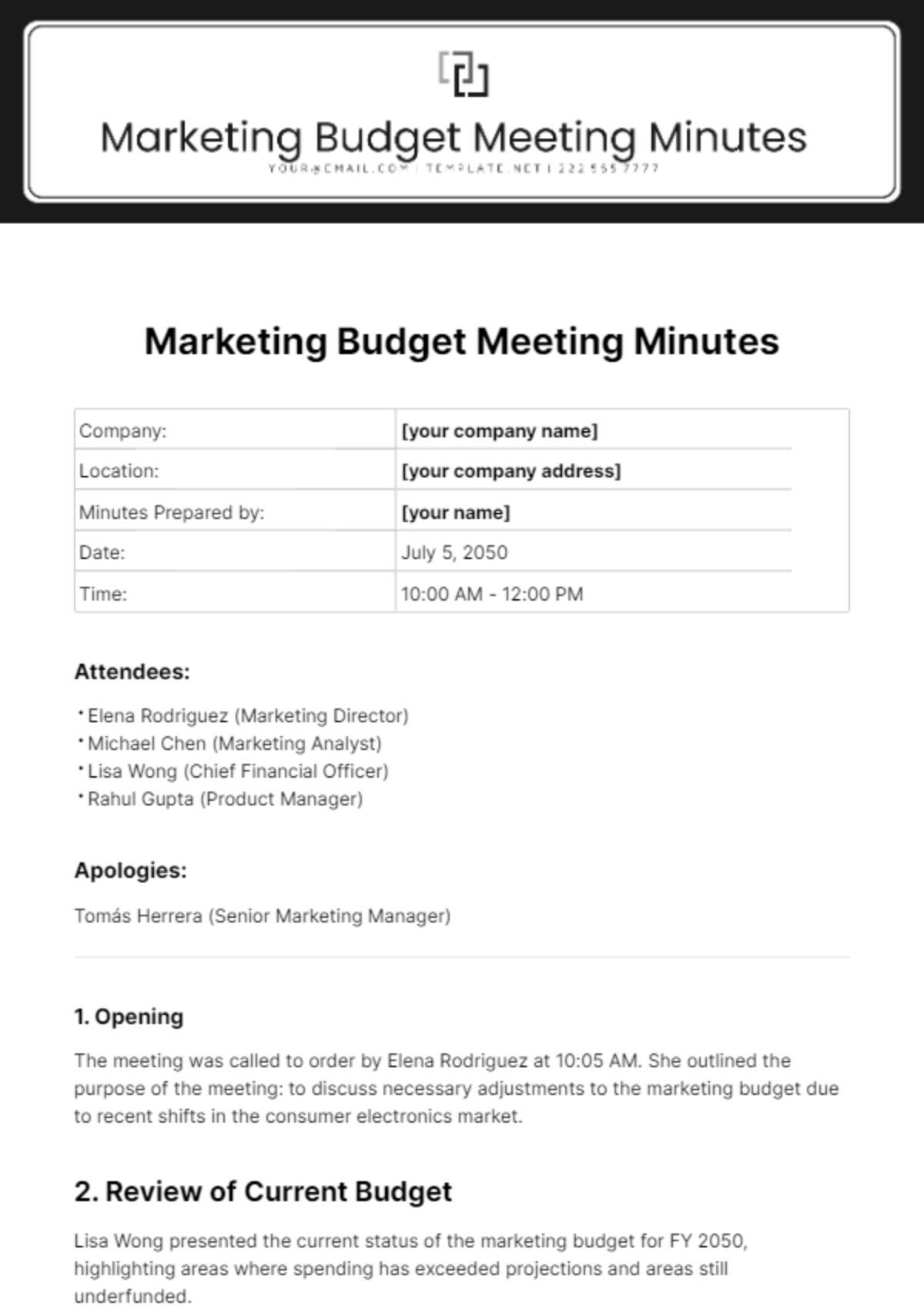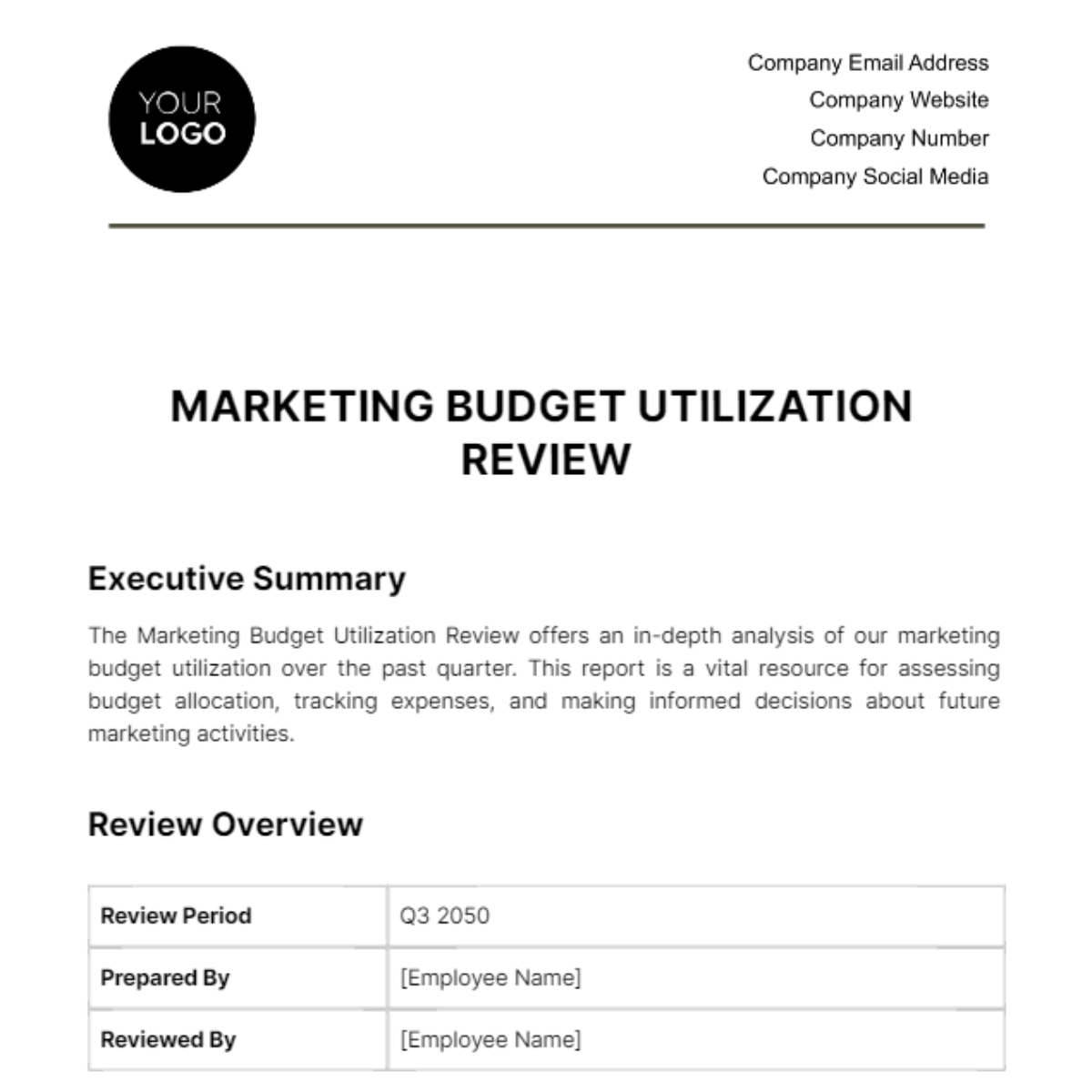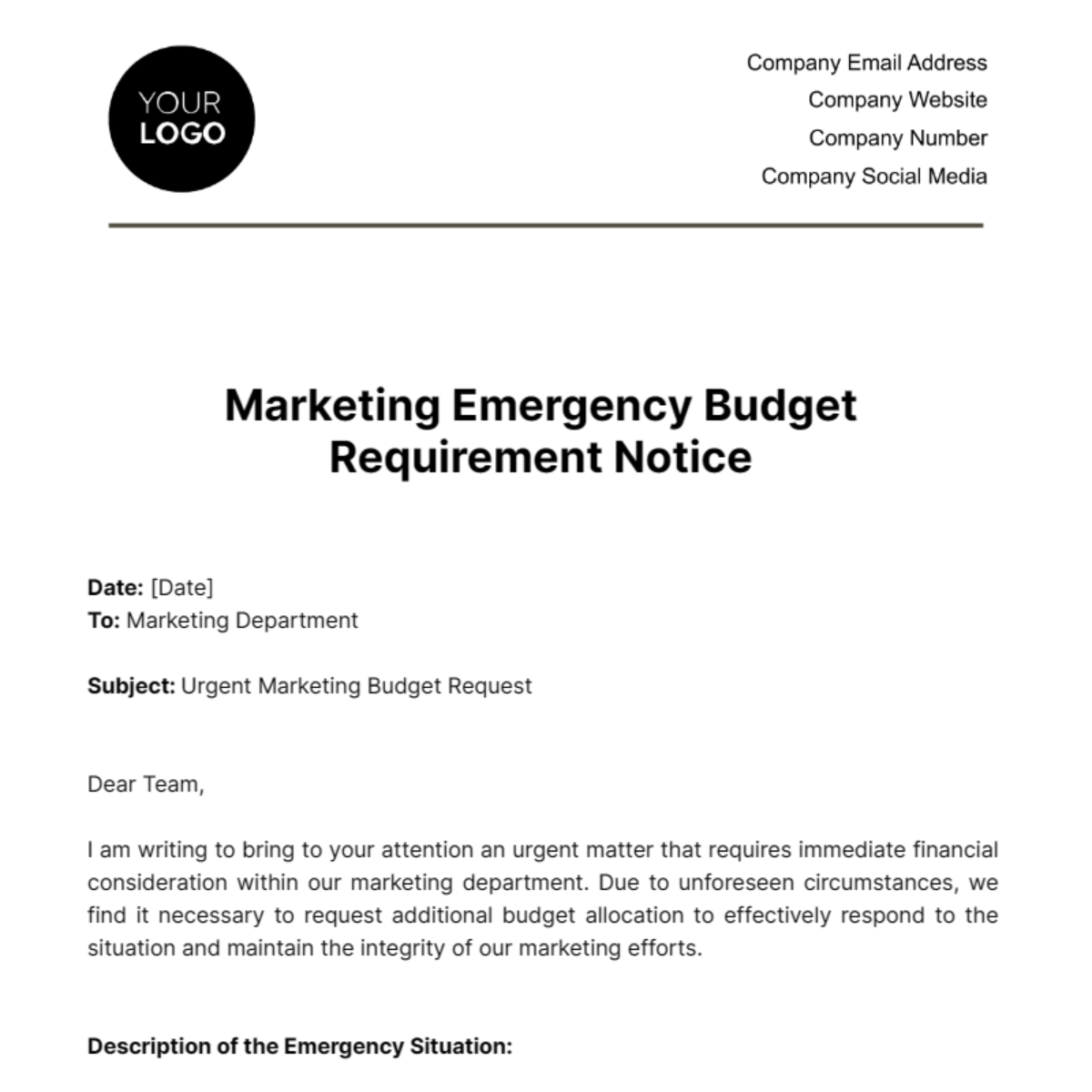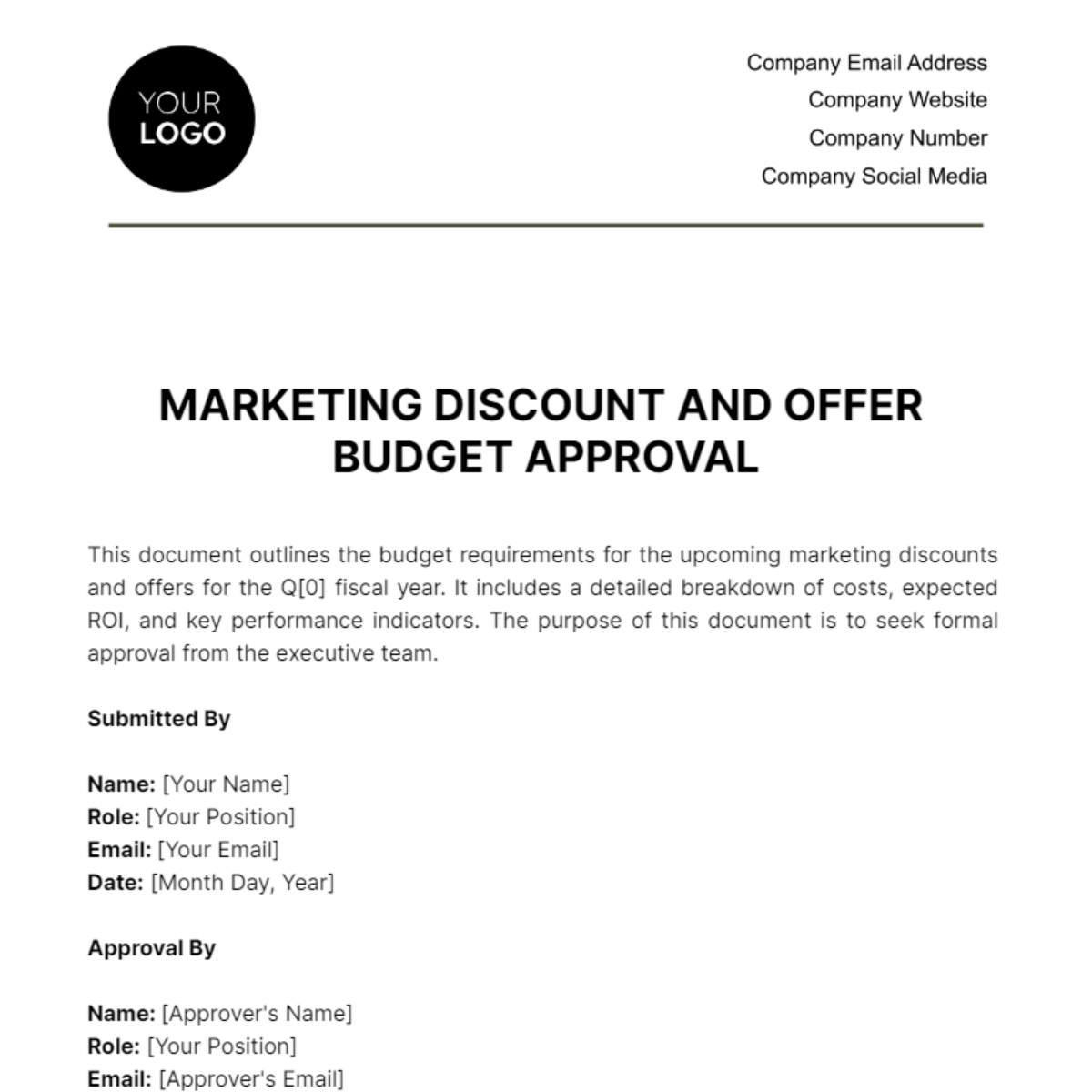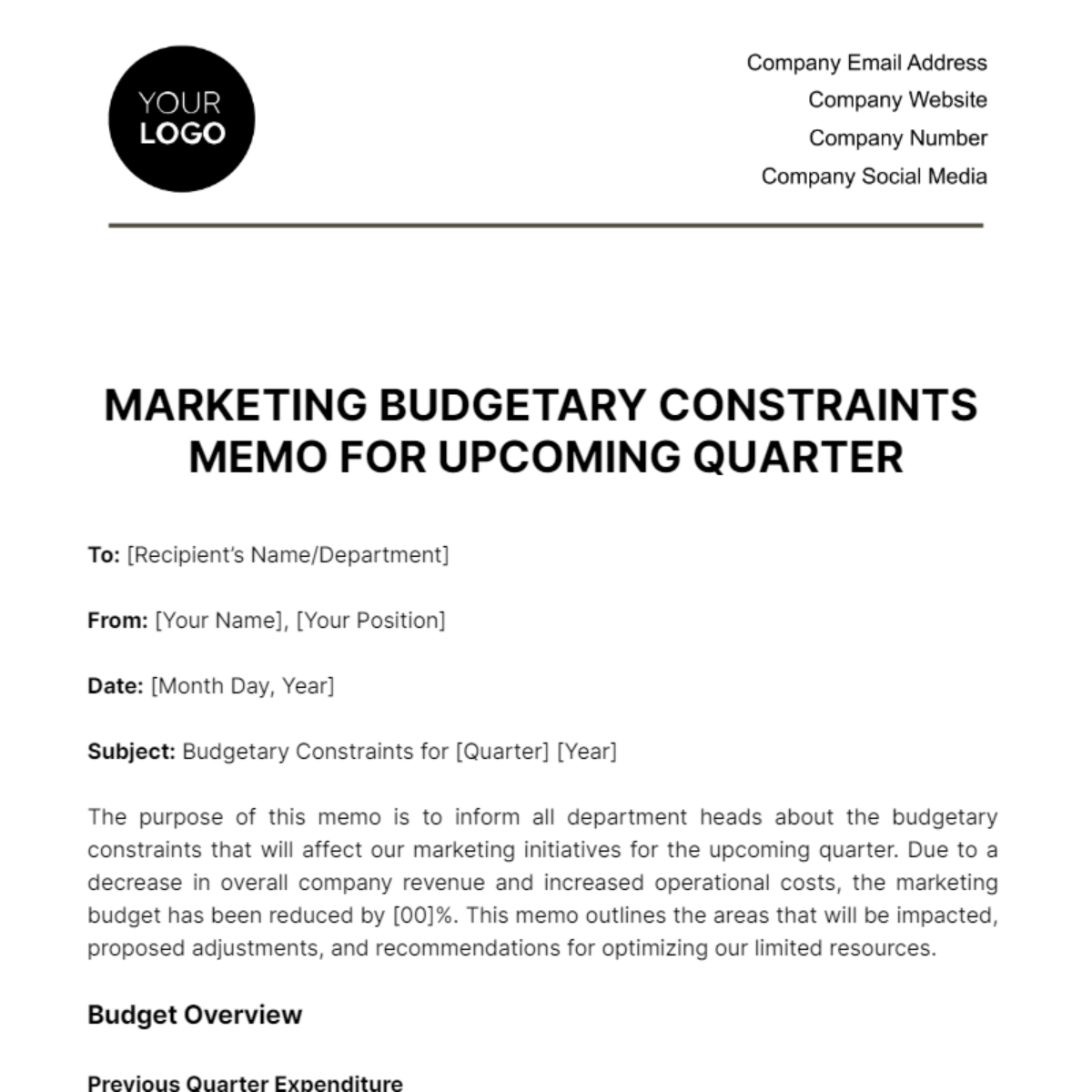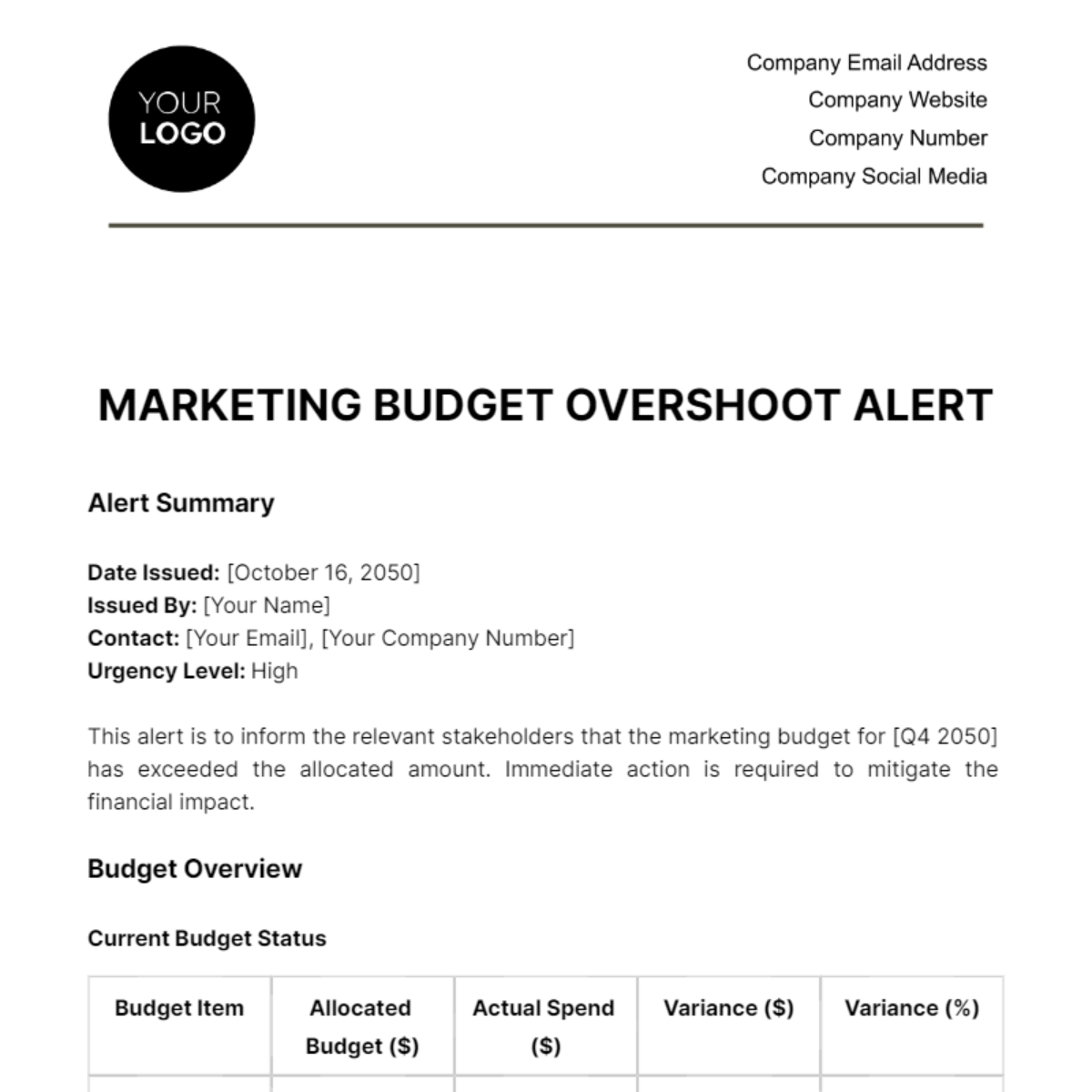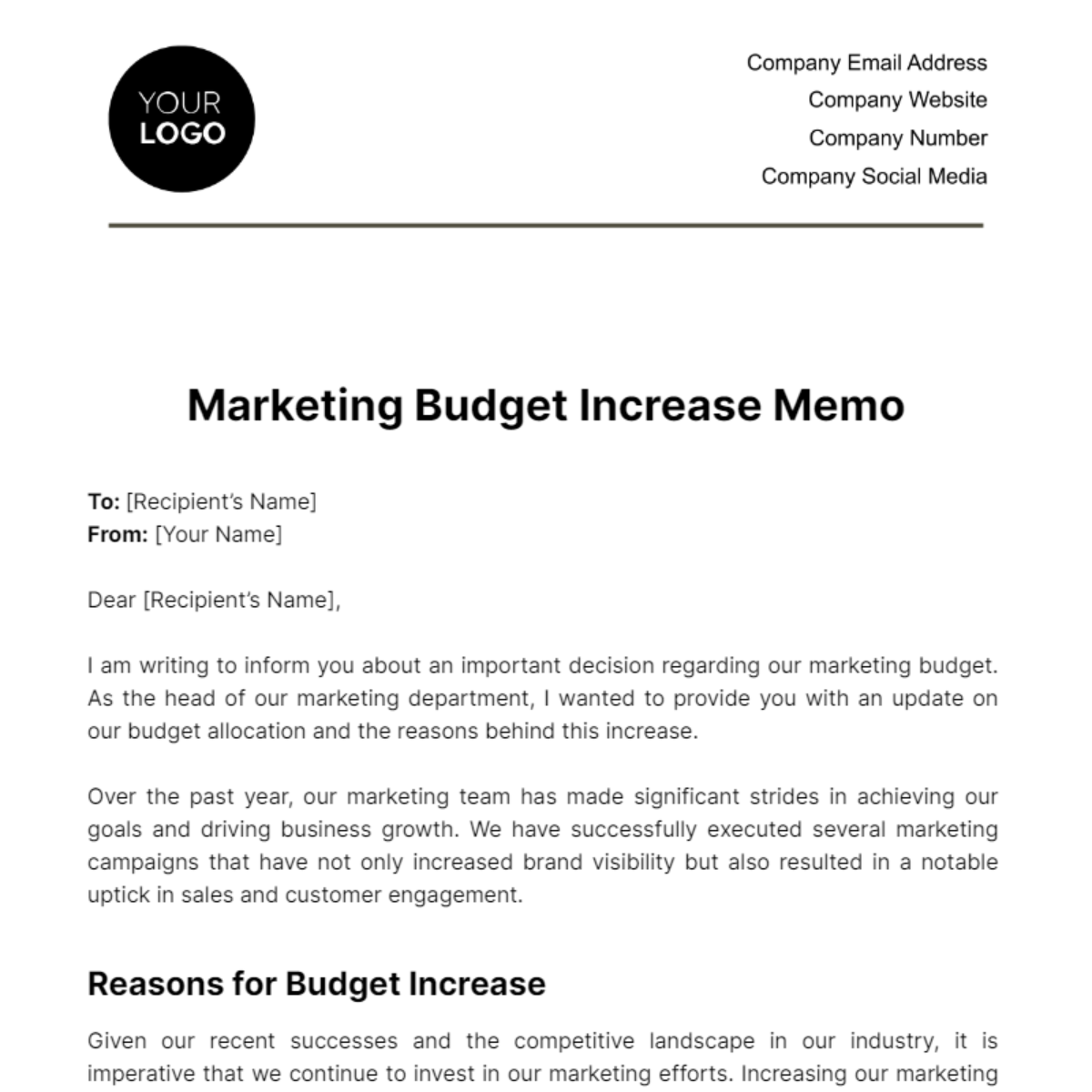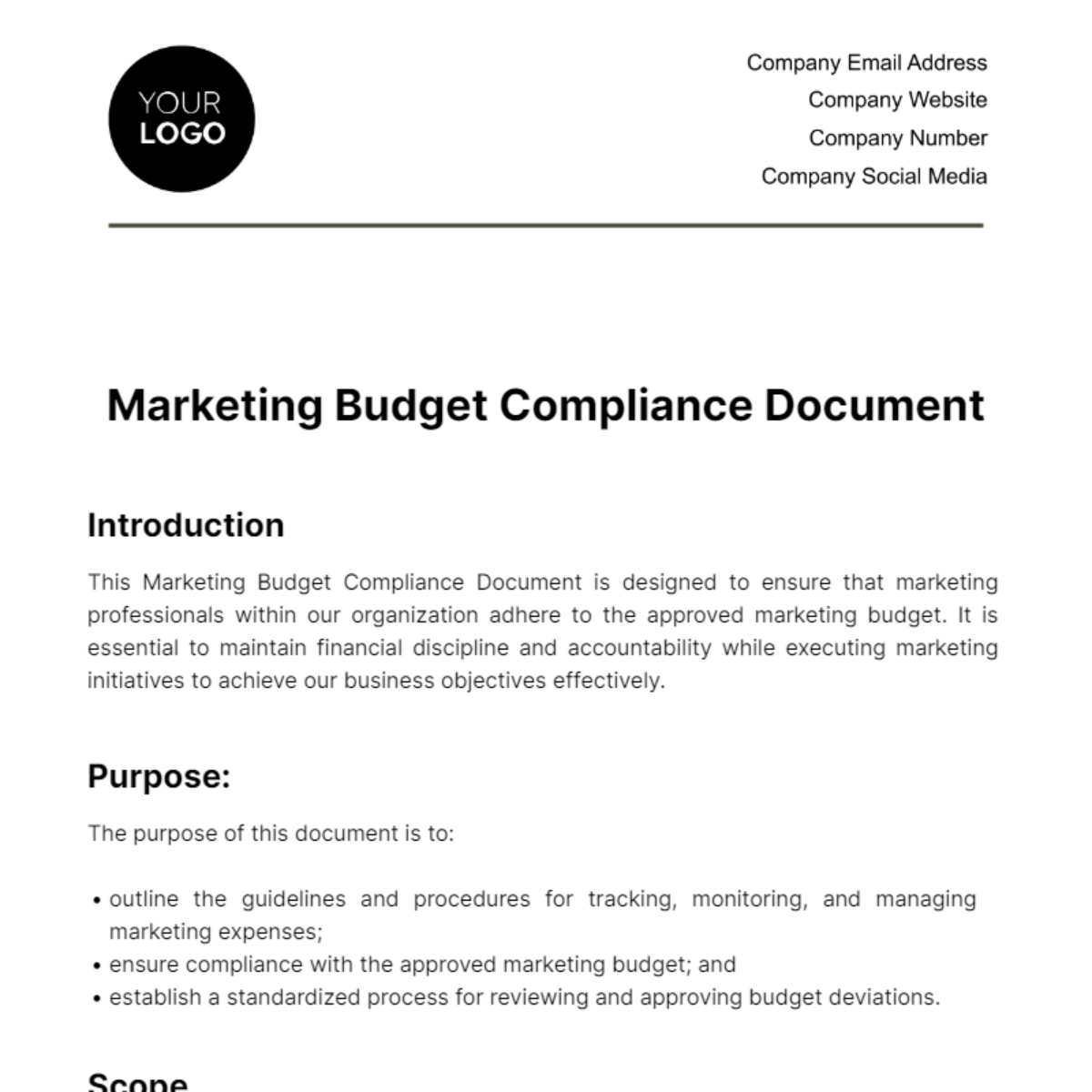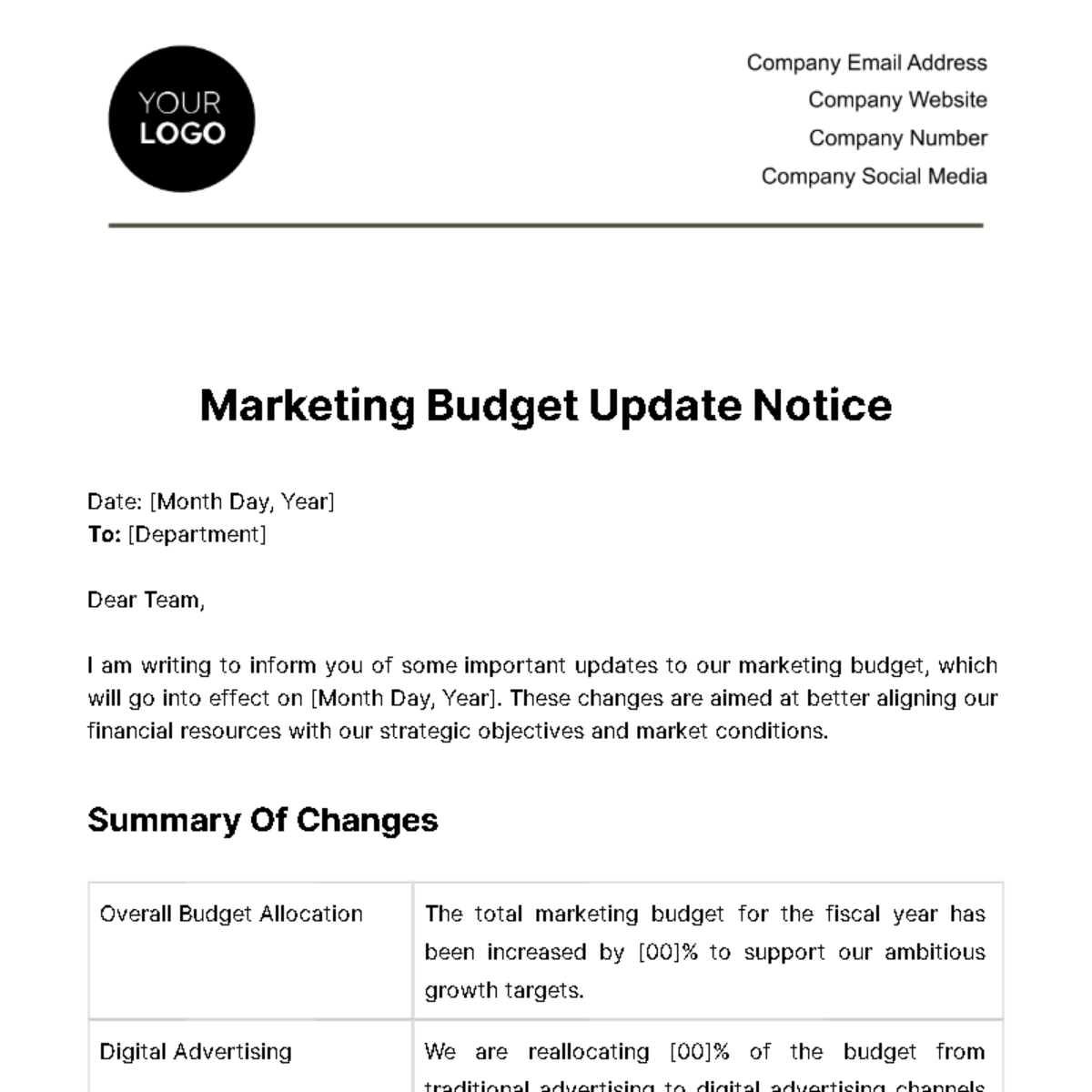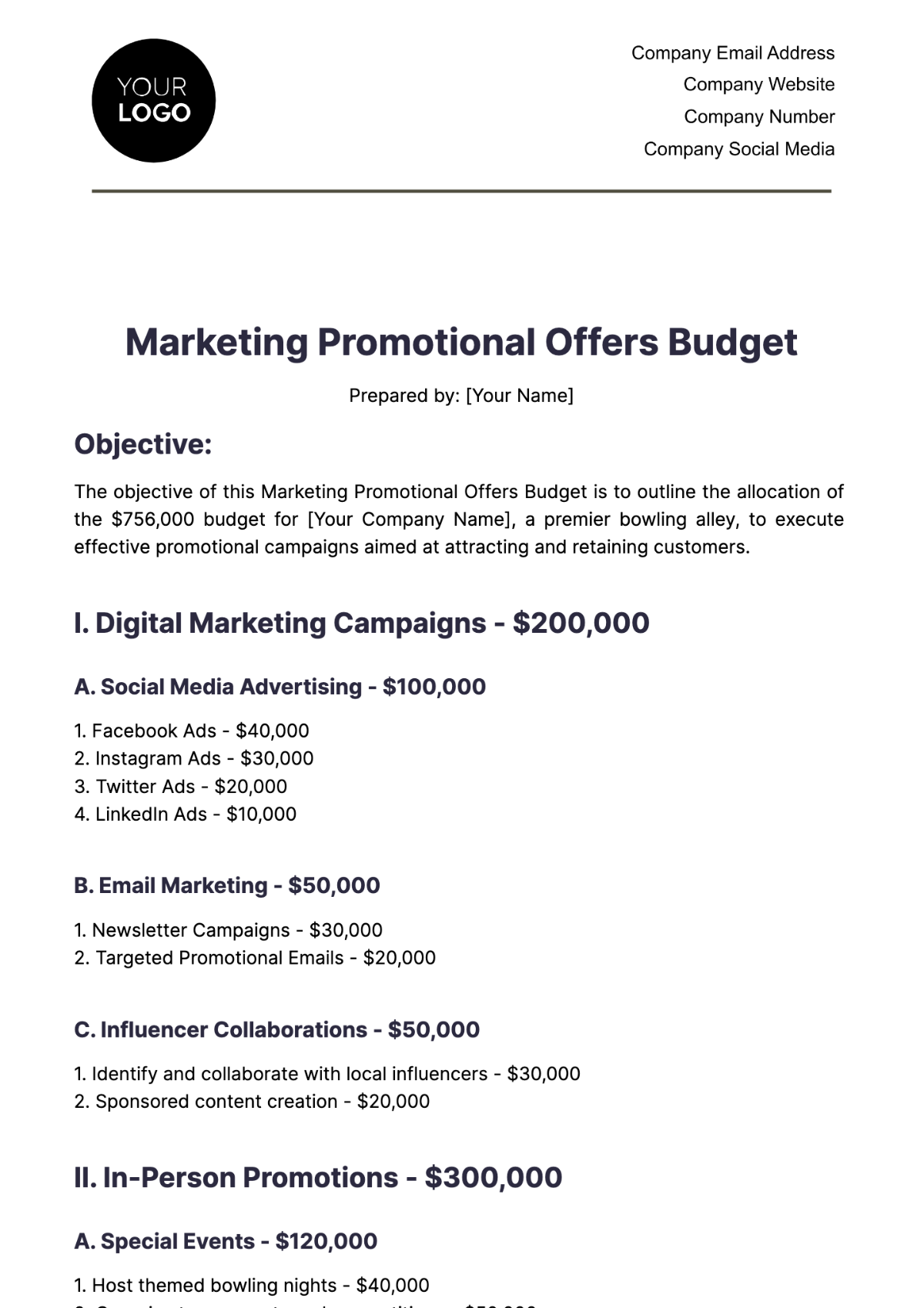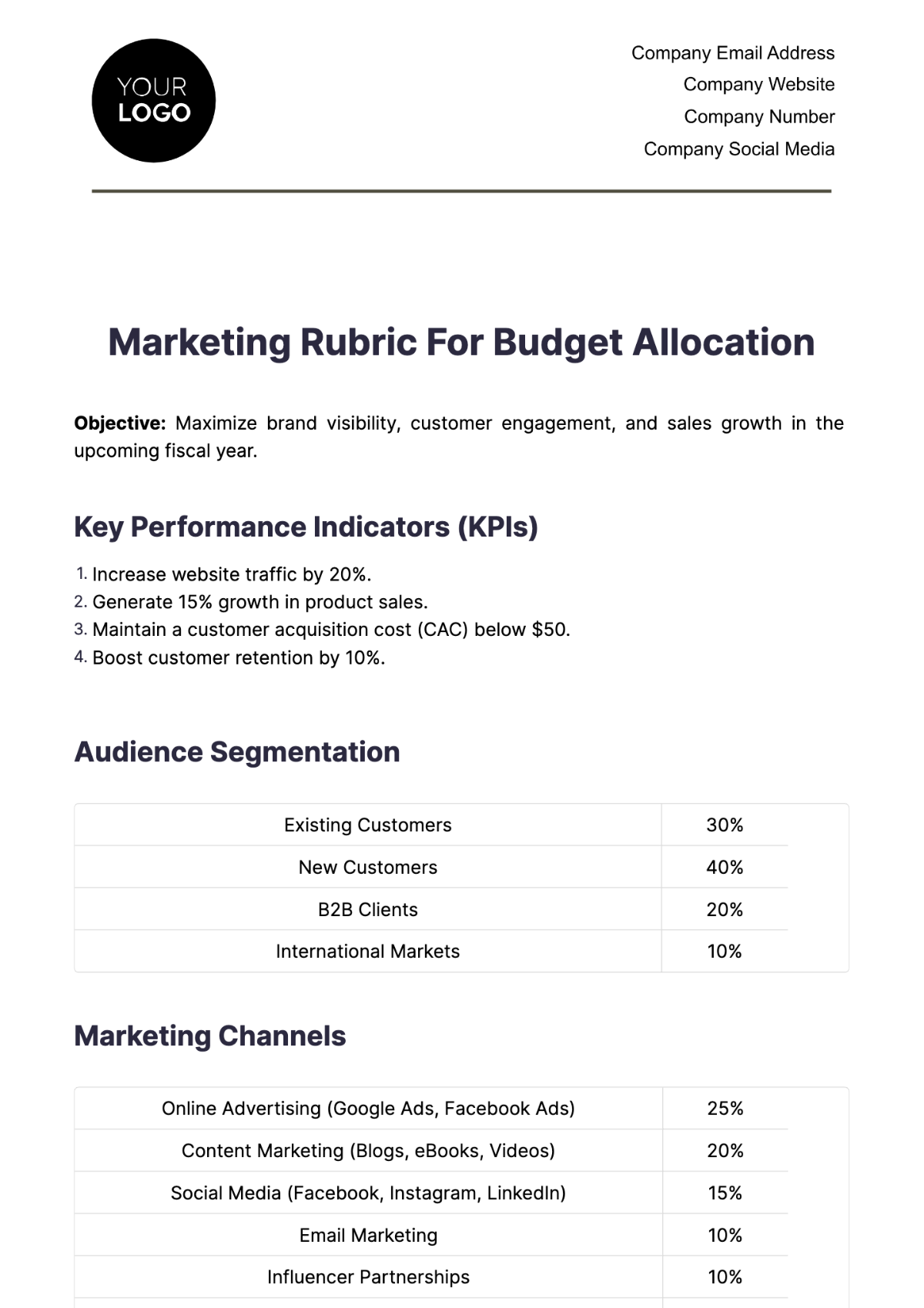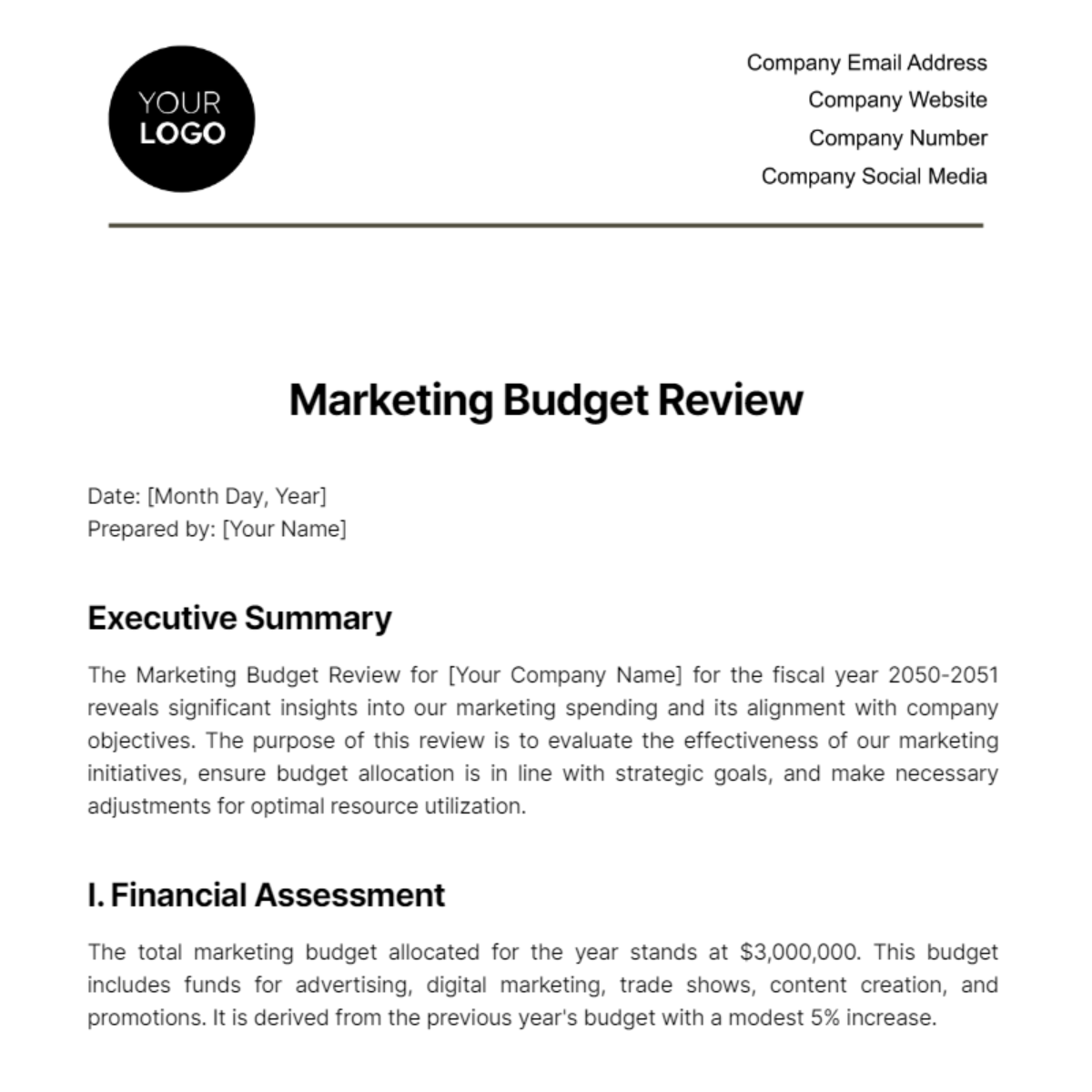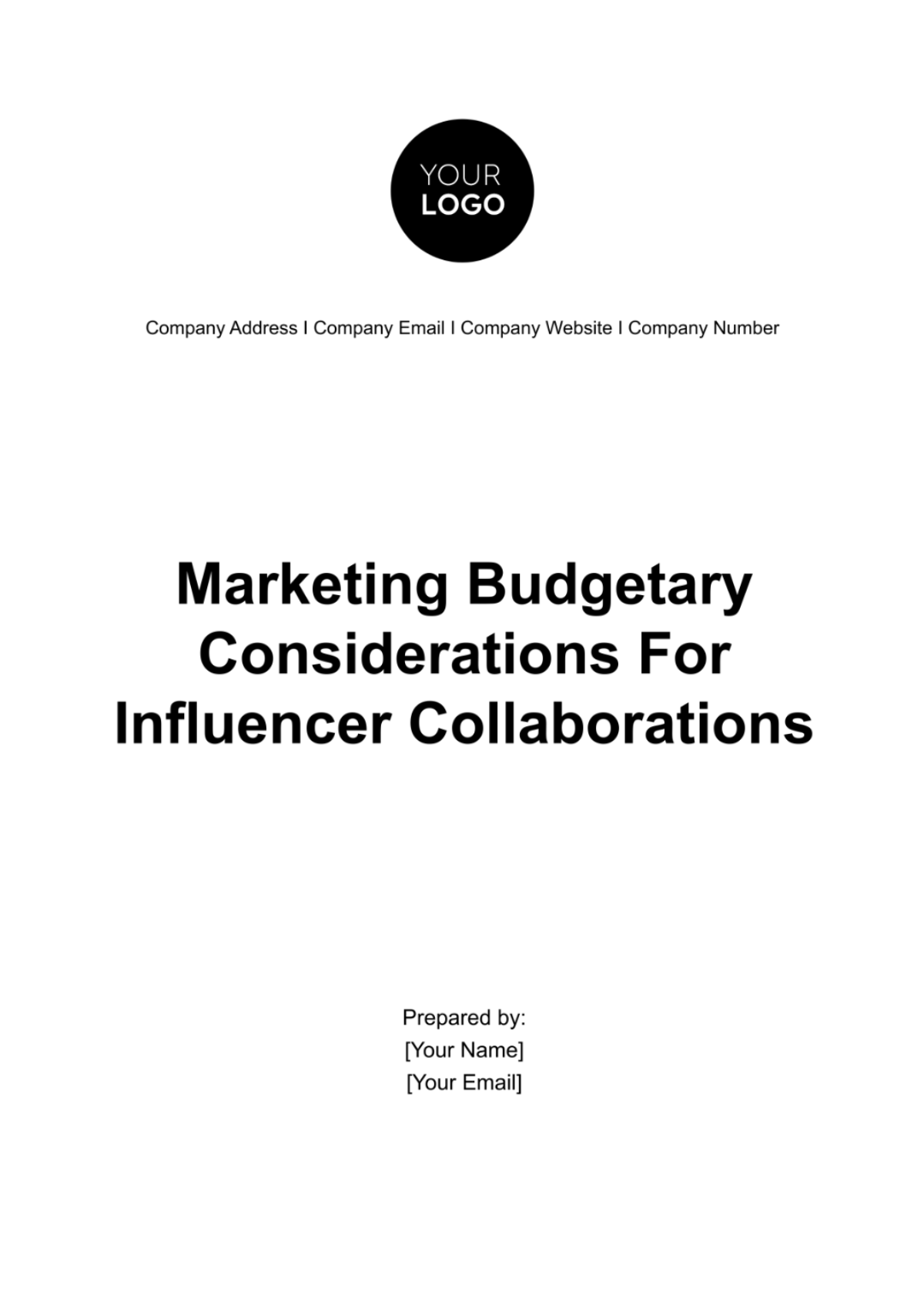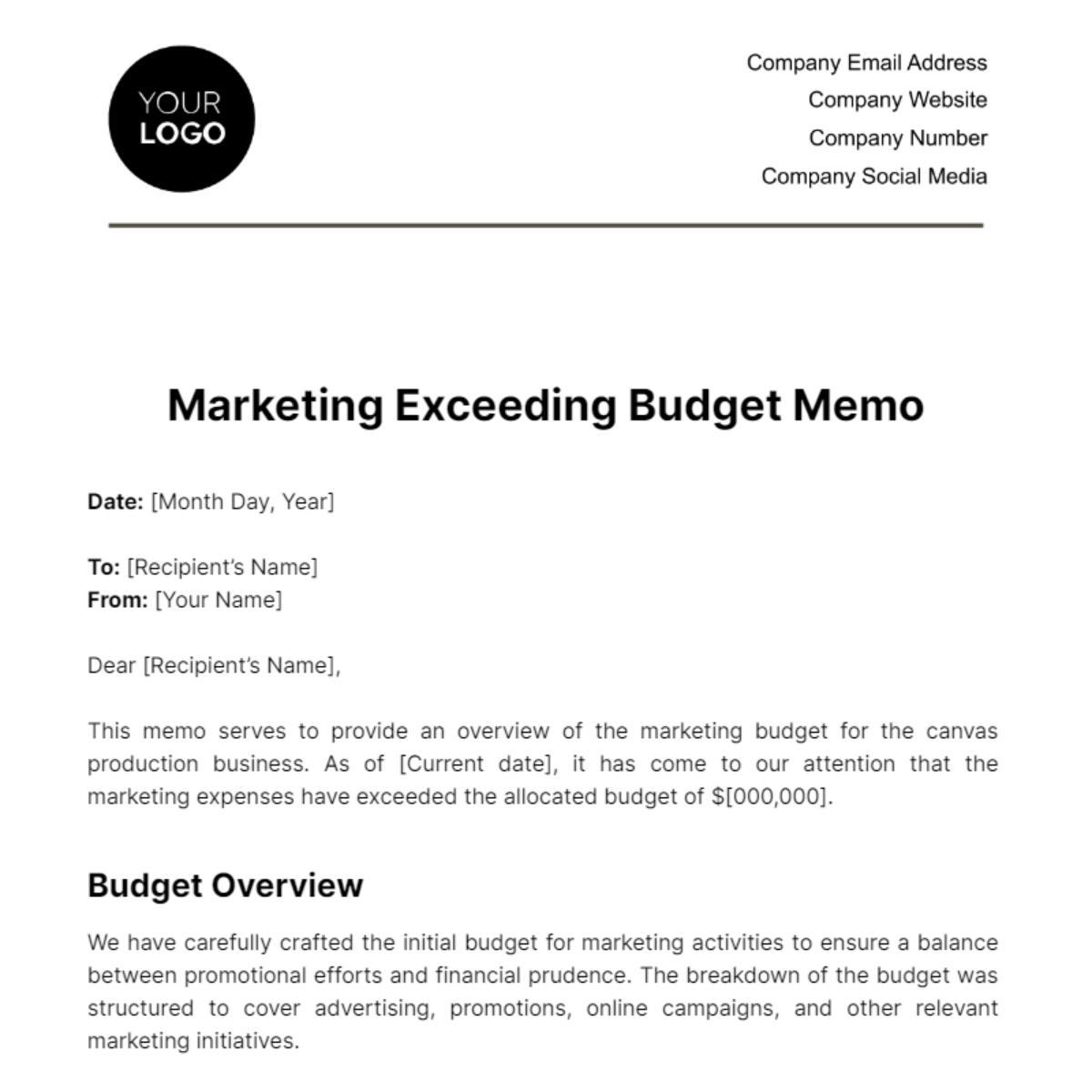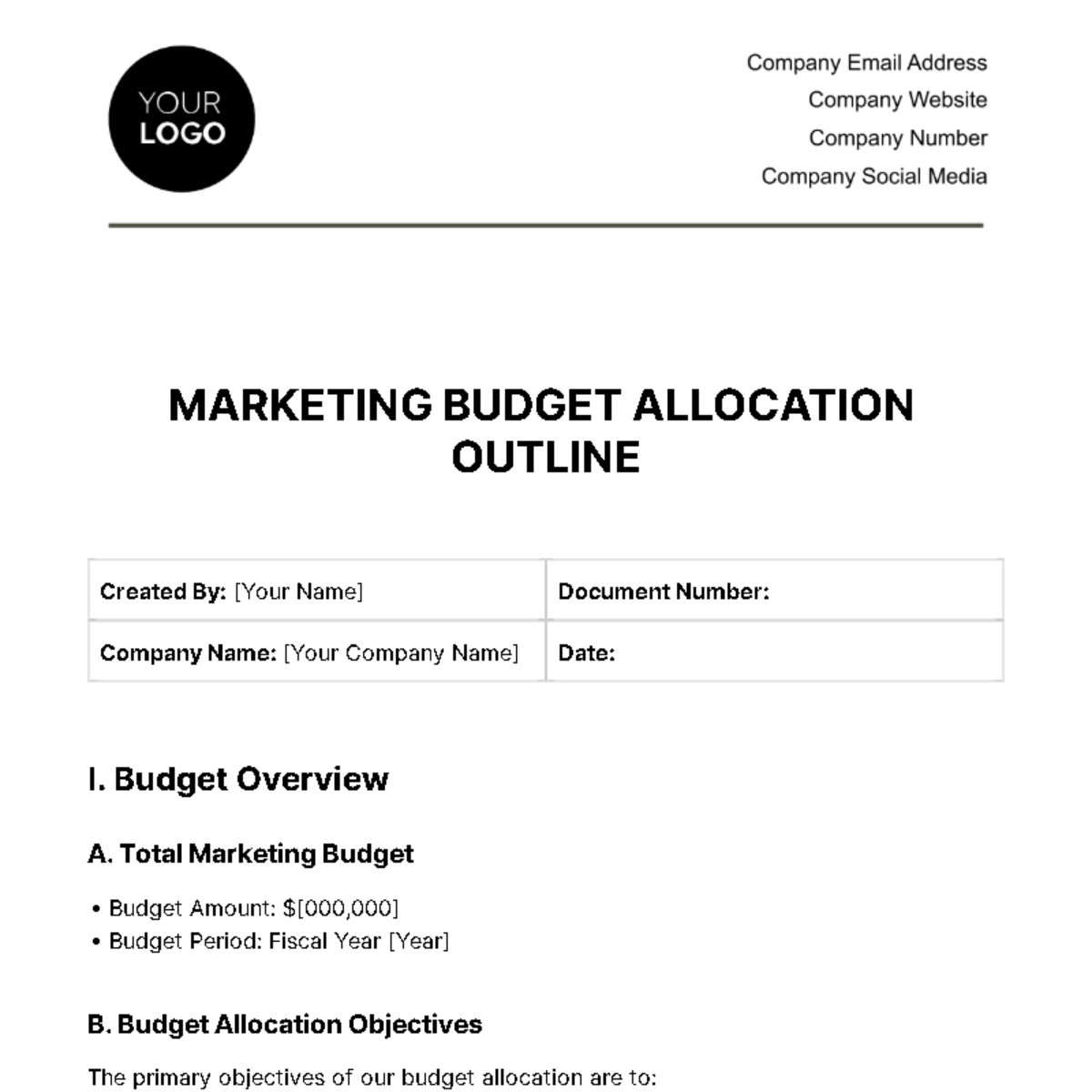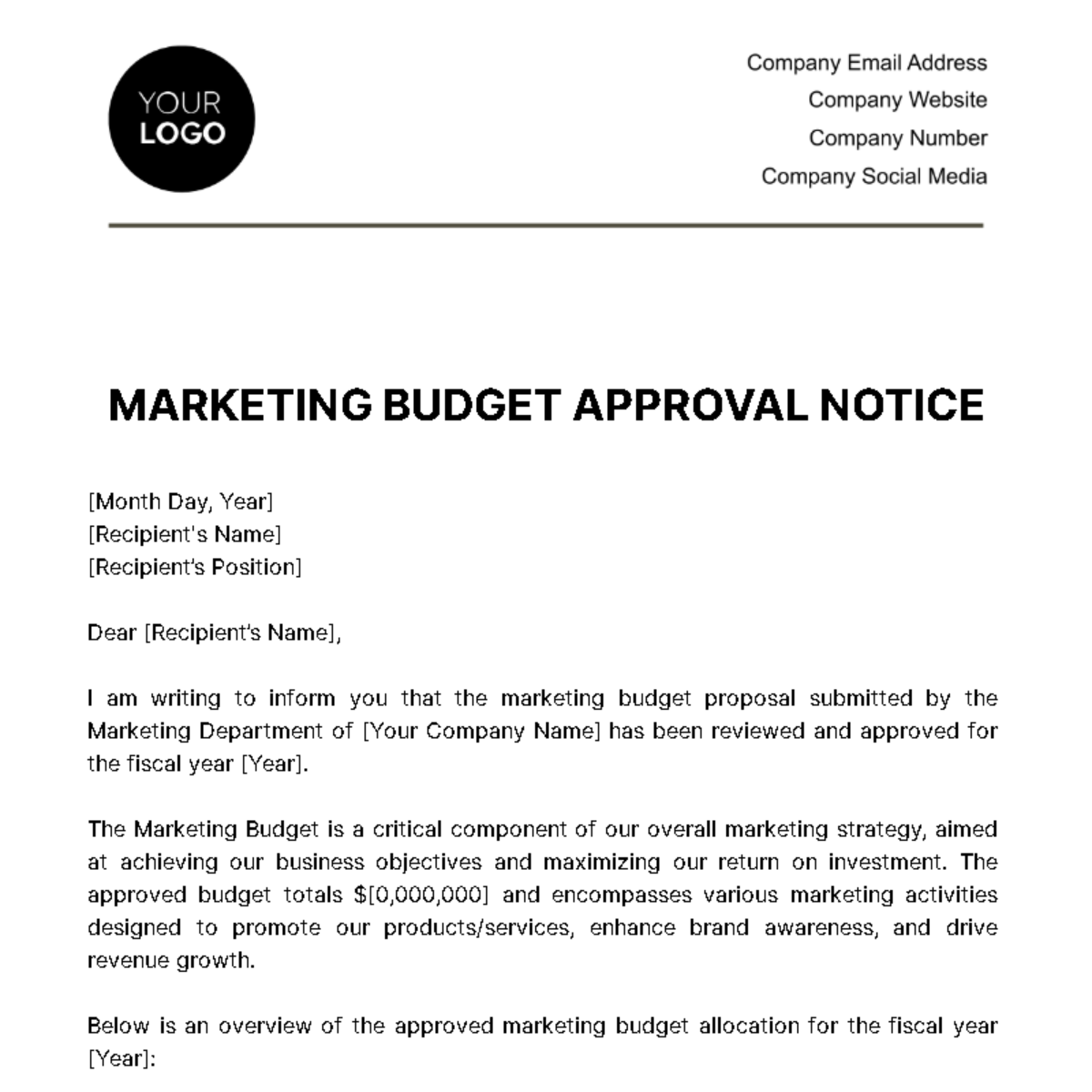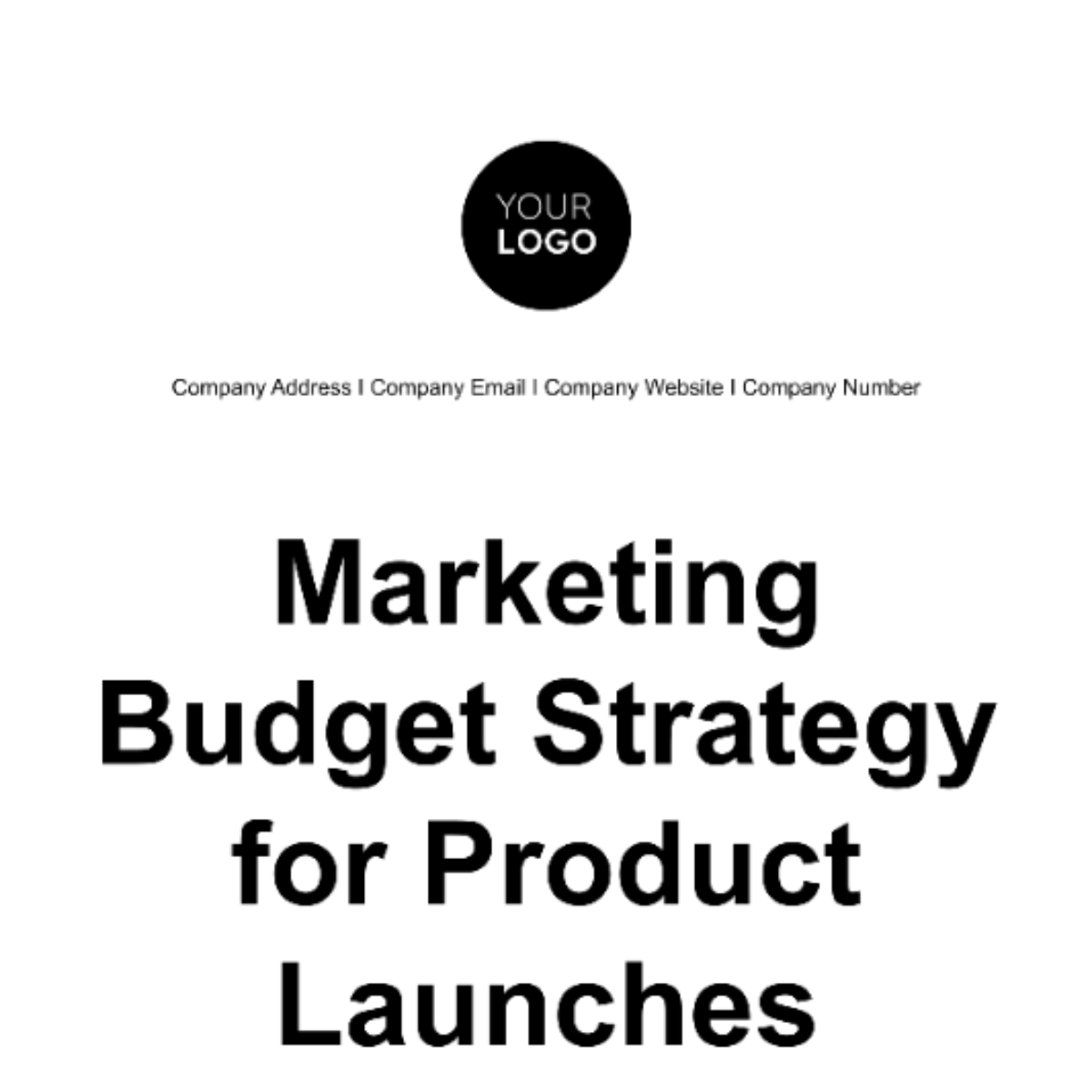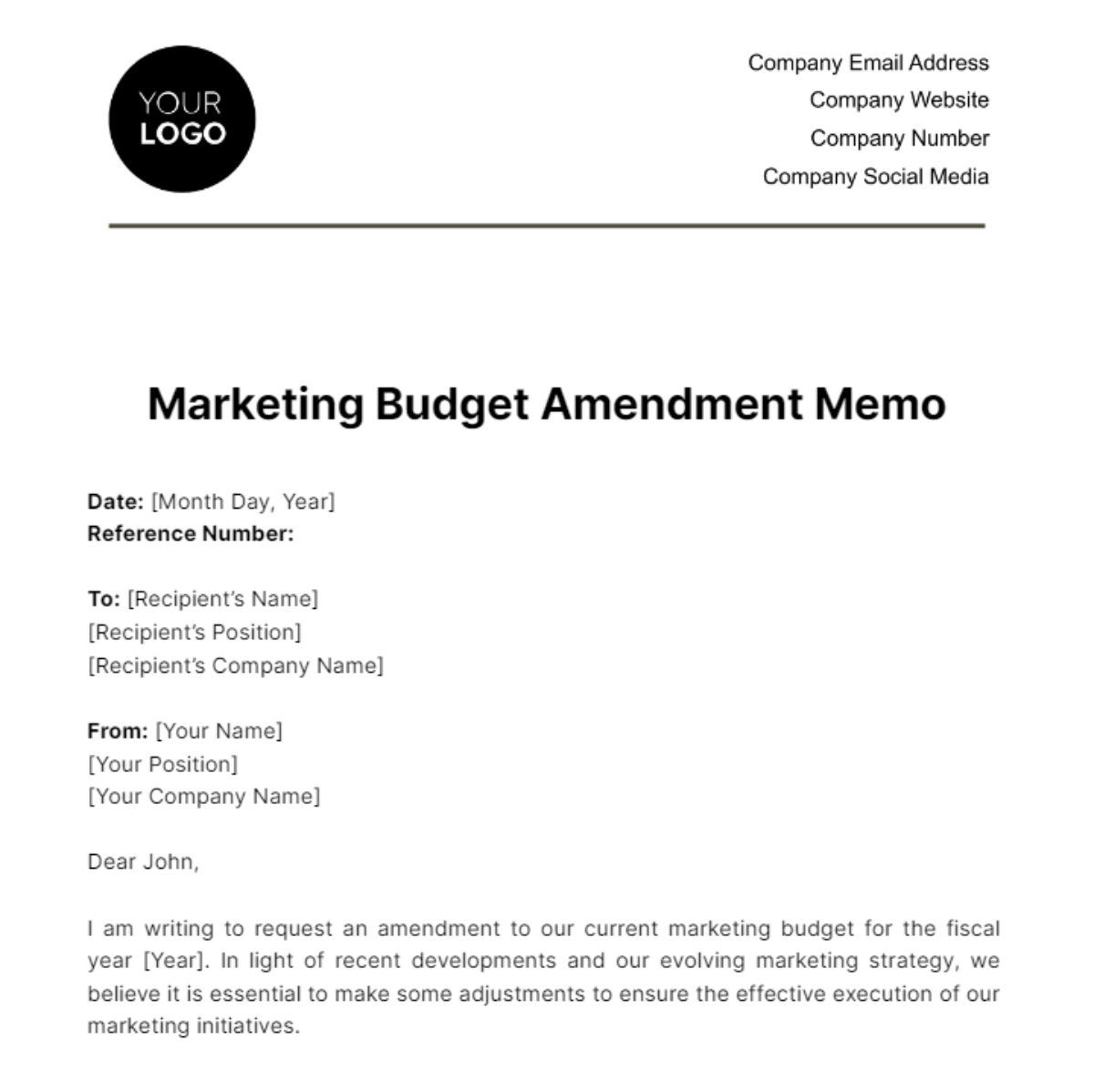Marketing Detailed Report on Budget Utilization
Executive Summary
In this exhaustive analysis of [Your Company Name]’s [Year] budget utilization, we delve deep into how our resources were distributed and utilized. This report offers an in-depth look into budget allocation, expenses, key performance indicators (KPIs), and their impact on our marketing initiatives. By the end of this report, we will have a clearer understanding of the efficacy of our marketing strategy and financial allocation for the past year.
A. Budget Allocation and Expenditure:
Diving into the financial details, we find that our total marketing budget for [Year] was set at $[0,000,000]. This budget was thoughtfully divided among various departments and initiatives. Digital Marketing received the lion's share at [00]%, with an allocation of $[000,000], closely followed by Traditional Marketing at [00]%, receiving $[000,000]. Content Marketing, Event Marketing, Influencer Marketing, Market Research, and Miscellaneous (Overheads) received their respective allocations.
B. Performance and Future Recommendations:
While we allocated budgets prudently, our analysis of expenditure and performance metrics reveals several key insights. Digital Marketing led the charge with a [00]% utilization of its allocation, and it demonstrated a remarkable [00]% growth in lead generation. On the other hand, Traditional Marketing, with [00]% allocation utilization, successfully reached an estimated [0] million viewers through TV ads.
To optimize future budget utilization, we recommend a further increase in Digital Marketing investments, better cost-efficiency in Traditional Marketing, and a deeper focus on Content Marketing and influencer collaborations. Our performance in trade shows and seminars proved highly effective in lead generation, making these events essential for our marketing strategy moving forward. This report lays the foundation for an informed and strategic approach to our marketing budget planning for the upcoming fiscal year.
Budget Allocation
Total Marketing Budget for FY [Year]: $[0,000,000]
The marketing budget for [Year] was allocated across various departments and initiatives as follows:
Expenses and Utilization
The expenses incurred across different marketing activities are detailed below:
Digital Marketing Allocation | $600,000 (40%) |
Marketing Category | Expenses |
Digital Advertising | $350,000 |
Traditional Marketing Allocation | $300,000 (20%) |
Marketing Category | Expenses |
Print Ads | $100,000 |
Content Marketing Allocation | $200,000 (13%) |
Marketing Category | Expenses |
Content Creation | $120,000 |
Event Marketing Allocation | $150,000 (10%) |
Marketing Category | Expenses |
Trade Shows | $80,000 |
Influencer Marketing Allocation | $100,000 (7%) |
Marketing Category | Expenses |
Influencer Fees | $70,000 |
Market Research Allocation | $50,000 (3%) |
Marketing Category | Expenses |
Surveys | $20,000 |
Miscellaneous (Overheads) Allocation | $100,000 (7%) |
Marketing Category | Expenses |
Administrative Costs | $35,000 |
Performance Metrics
To gauge the effectiveness of our marketing campaigns, we tracked the following key performance indicators:
A. Digital Marketing:
Website Traffic: Increased by [00]%
Click-through Rate (CTR): Averaged [0]%
Lead Generation: Grew by [00]%
B. Traditional Marketing:
TV Ad Reach: Estimated at [0] million viewers
Print Ads Engagement: Increased by [0]%
Billboards Impressions: Approximately [000,000] per month
C. Content Marketing:
Blog Traffic: Increased by [00]%
SEO Ranking: Improved by [00] positions on average
Email Open Rate: Averaged [00]%
D. Event Marketing:
Trade Show Leads Generated: [000]+
Seminar Attendance: Averaged [00] attendees per event
Product Launch Impact: [00]% increase in product sales
E. Influencer Marketing:
Influencer Reach: [000,000]+
Engagement Rate: Averaged [0]%
The marketing campaign analysis shows positive performance indicators across various channels. Digital marketing exhibited significant growth in website traffic, CTR, and lead generation. Traditional marketing reached a wide audience with TV ads and increased engagement in print ads. Content marketing improved blog traffic and SEO rankings, while event marketing successfully generated leads and boosted product sales. Influencer marketing achieved a broad reach and maintained a respectable engagement rate.
Future Recommendations
In light of our thorough analysis of budget allocation and the performance metrics obtained, we offer the following strategic recommendations:
Amplify Investment in Digital Marketing: Given its remarkable return on investment, we strongly advise a more substantial allocation to the digital marketing sector. This will allow us to capitalize on its proven effectiveness in reaching and engaging our target audience.
Revamp Traditional Marketing Channels for Efficiency: Our data reveals that traditional marketing channels have potential for cost-effectiveness. We recommend revisiting these channels with a fresh perspective, exploring innovative approaches, and optimizing them to maximize their impact on our marketing efforts.
Elevate Content Marketing and Foster Influencer Collaborations: To further bolster our online presence and enhance audience engagement, we propose a greater investment in content marketing. This includes crafting compelling, high-quality content and nurturing influencer partnerships to amplify our brand's reach and credibility.
Sustain Participation in Trade Shows and Seminars: Our experience underscores the value of trade shows and seminars as potent lead generation channels. We recommend continuing our involvement in these events, refining our strategies, and exploring additional opportunities for increased success.
Conclusion
[Your Company Name] has adeptly harnessed its marketing budget for the fiscal year [Year], propelling substantial advancements in pivotal performance indicators across a diverse spectrum of marketing channels. Through vigilant monitoring of expenditures, meticulous scrutiny of performance metrics, and a commitment to data-driven decision-making, the organization is poised to refine and amplify its marketing strategy in preparation for the forthcoming year.
This report stands as a comprehensive compendium of budget utilization, imparting invaluable insights that will underpin the strategic blueprint for the forthcoming fiscal year's marketing budget. The successes and lessons of the past year provide a solid foundation upon which [Your Company Name] can build, innovate, and optimize its marketing endeavors, ensuring continued growth and success.

